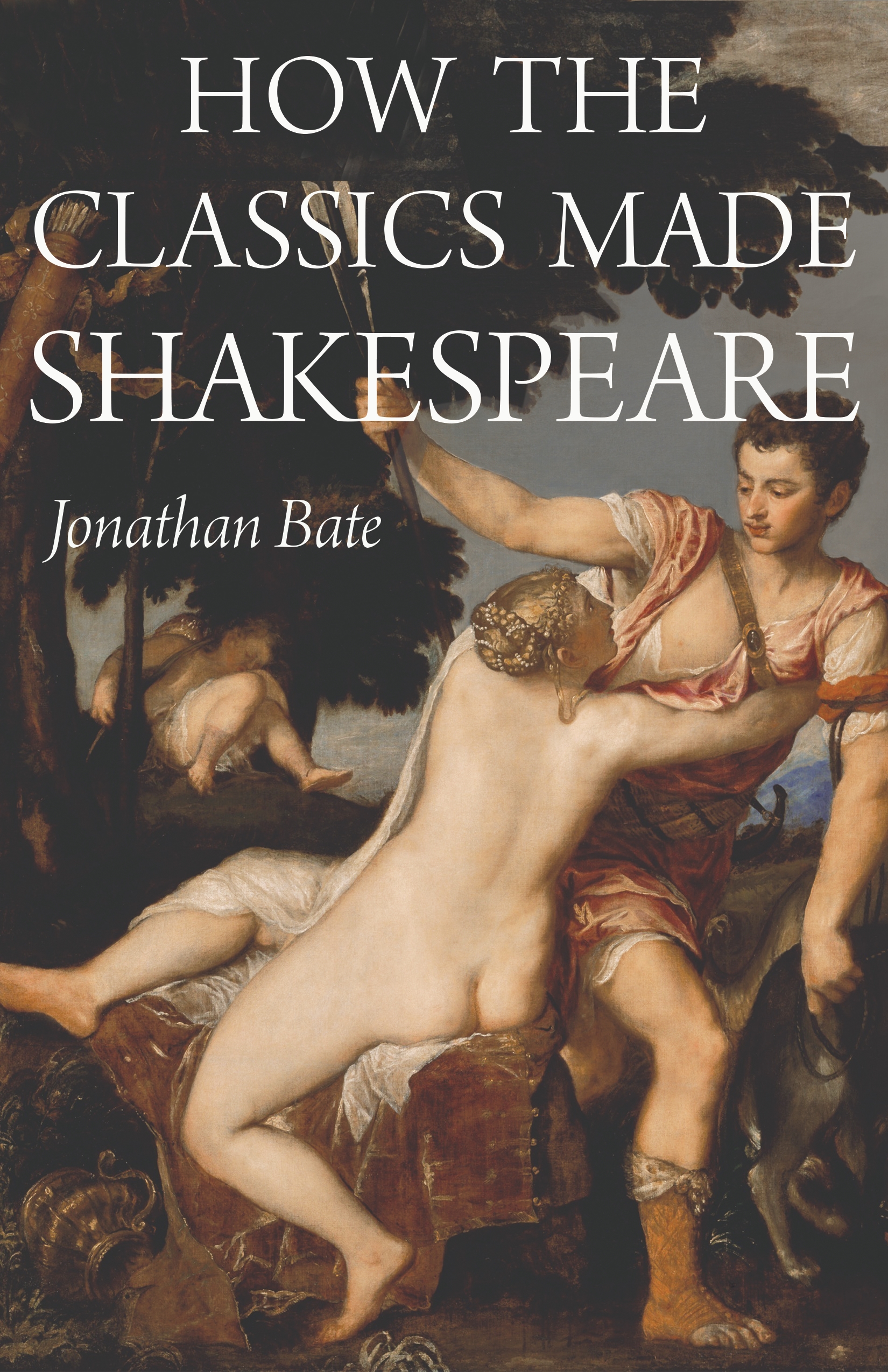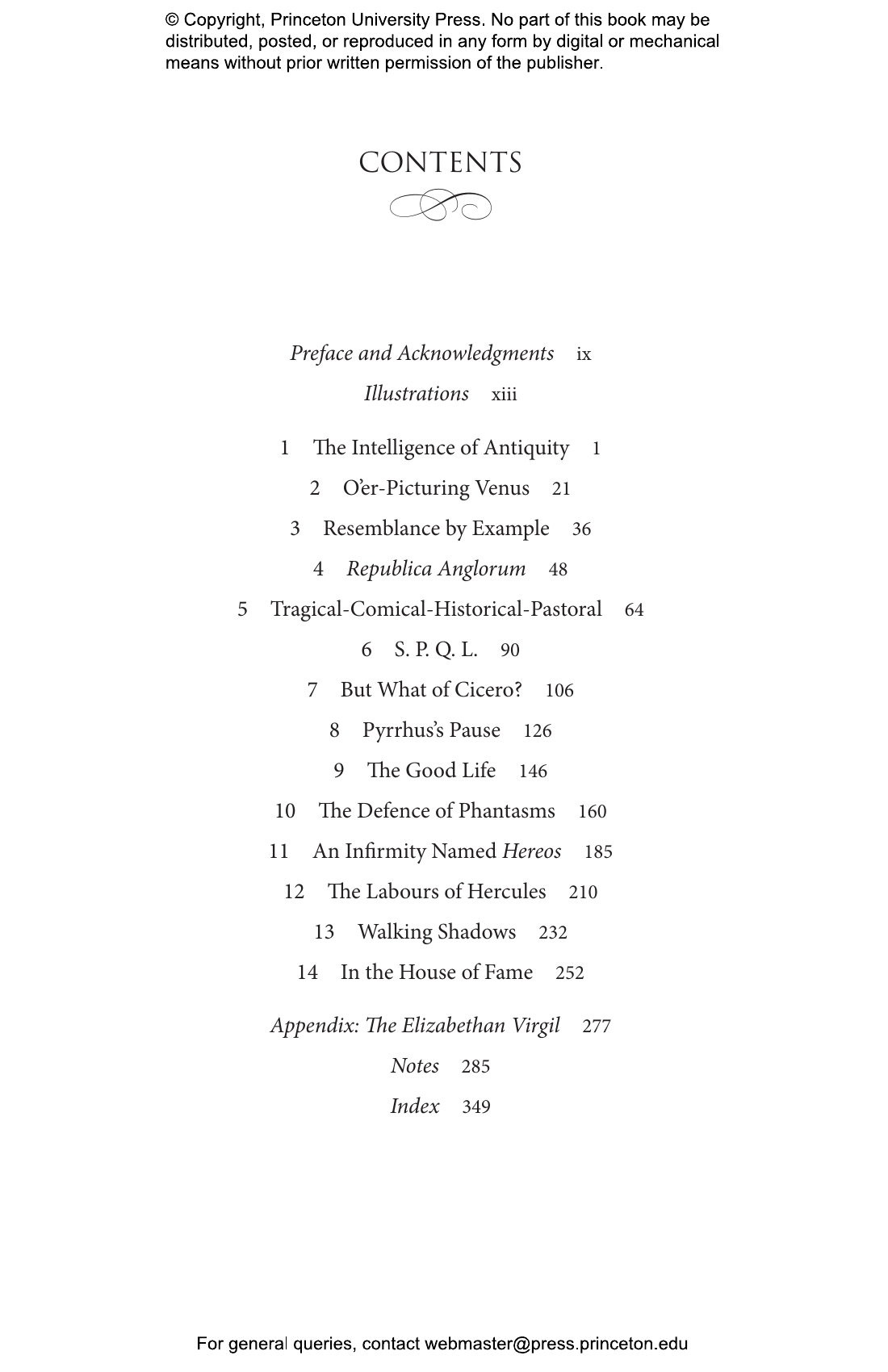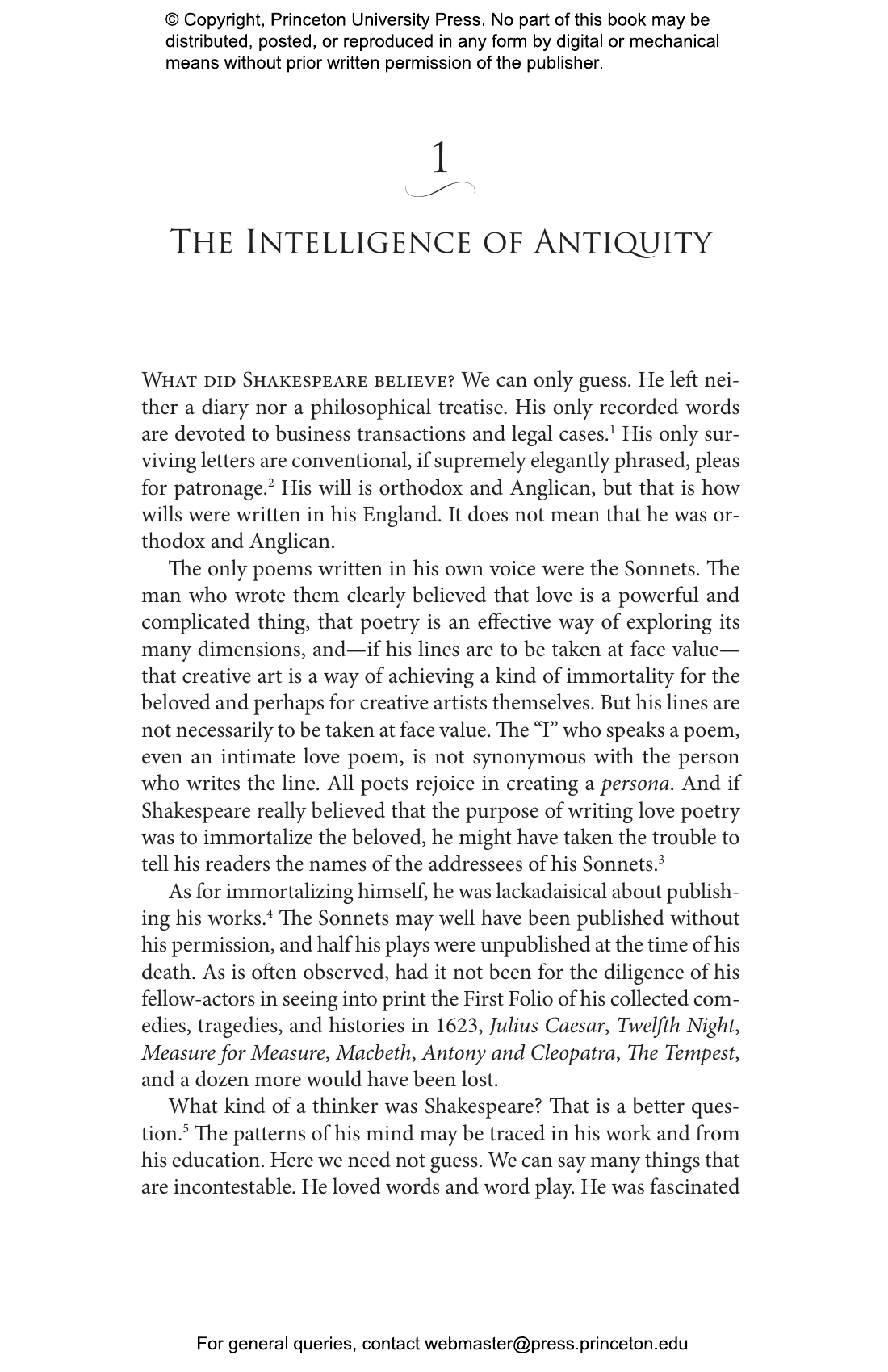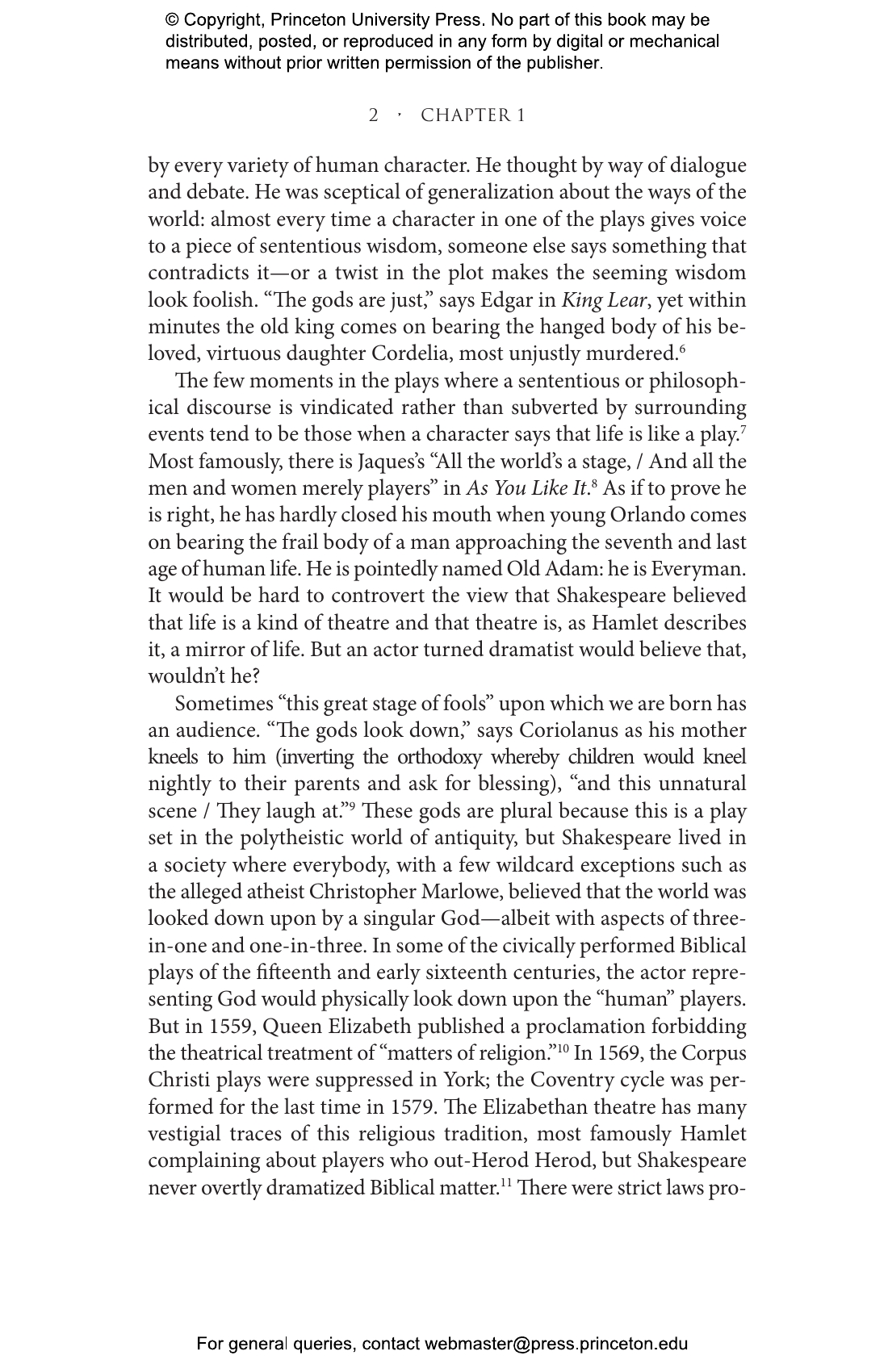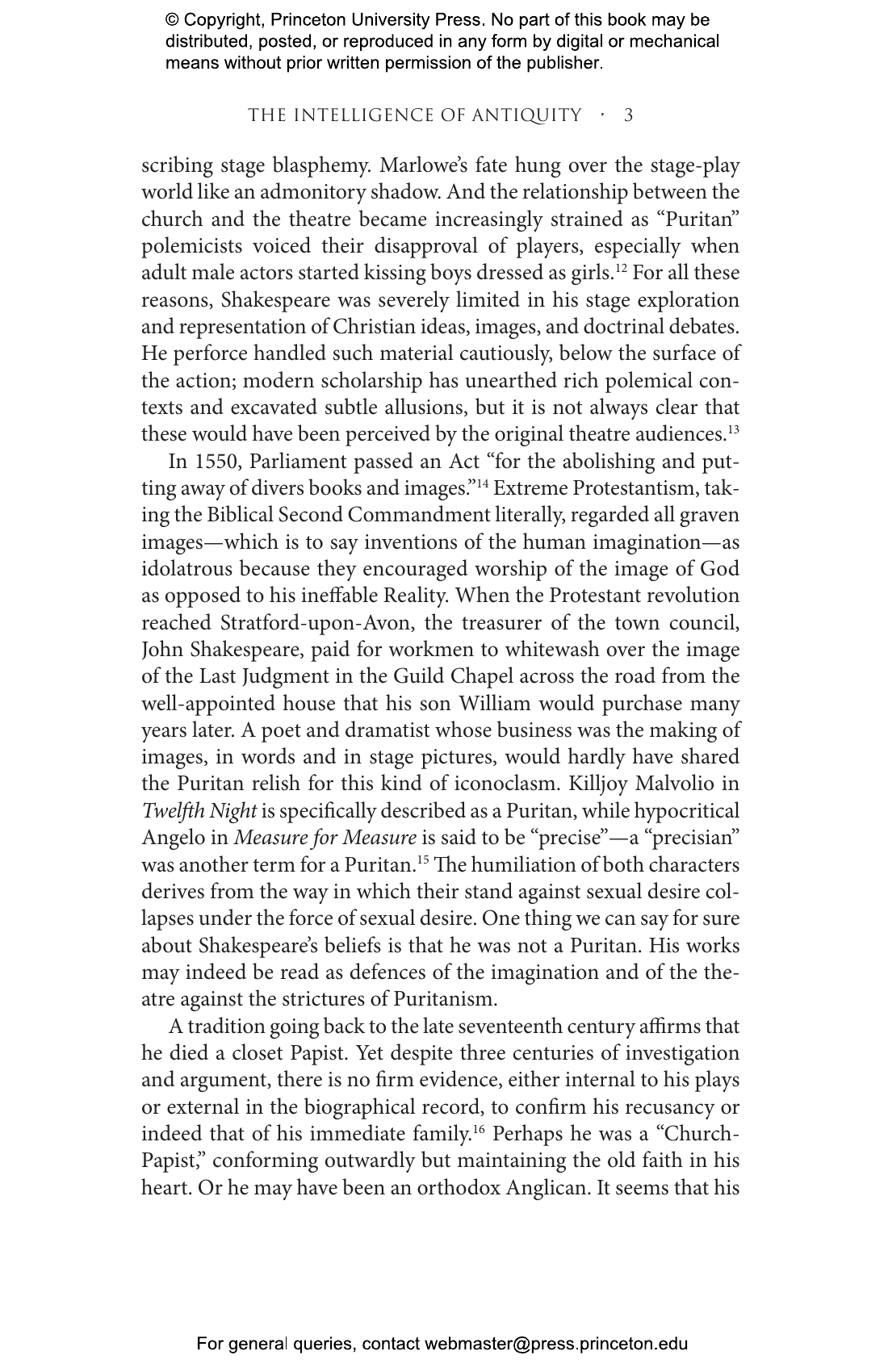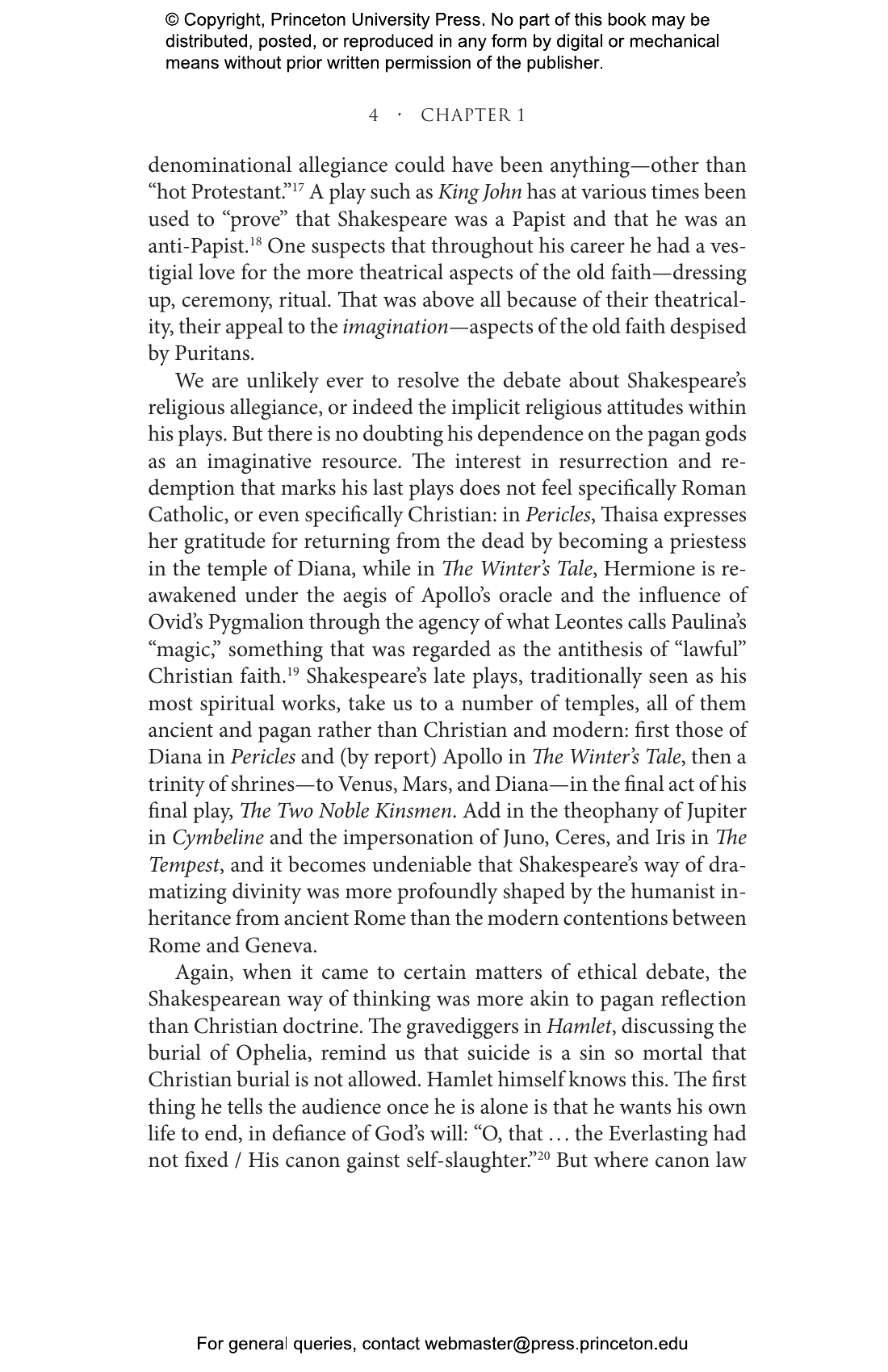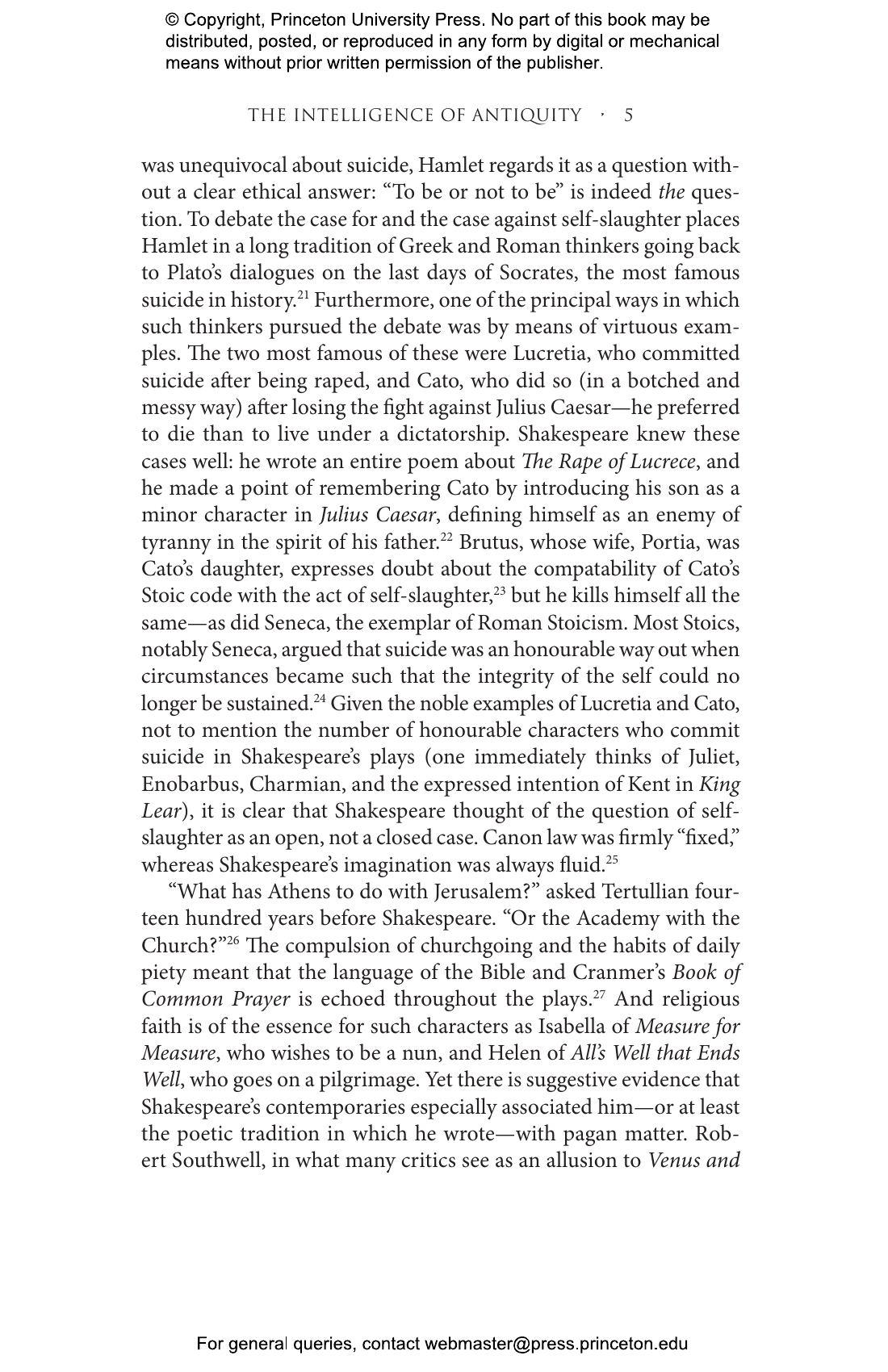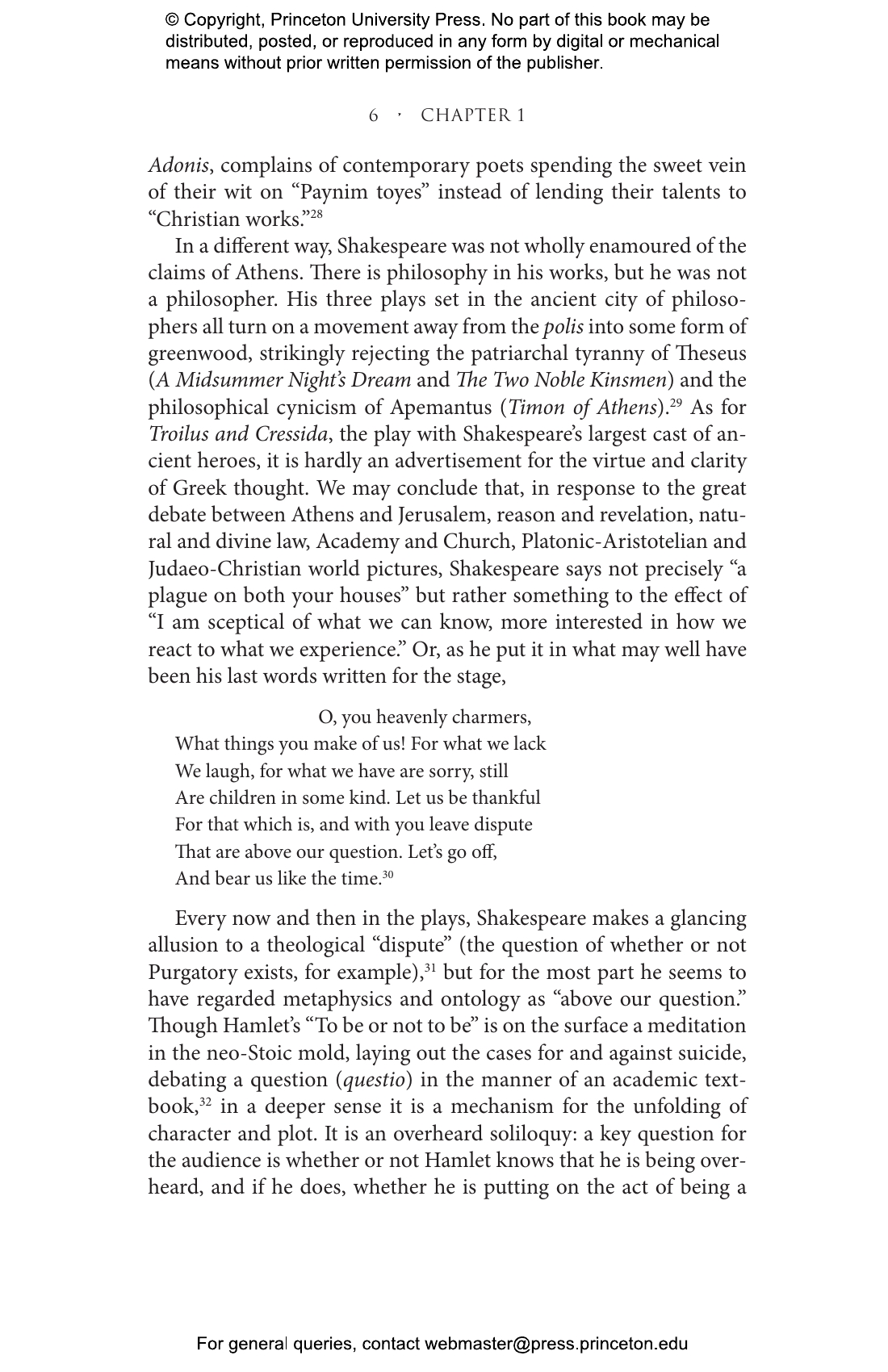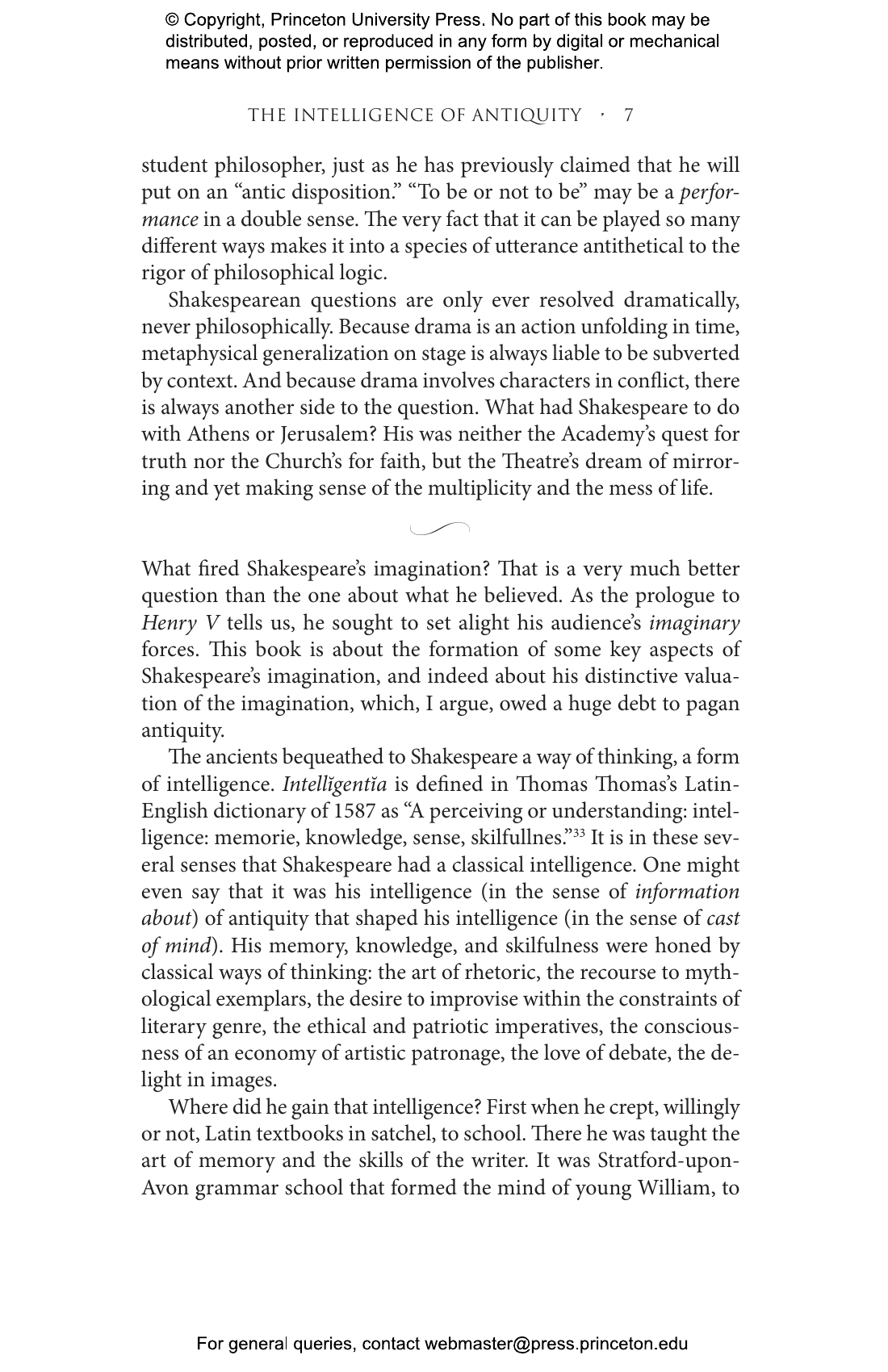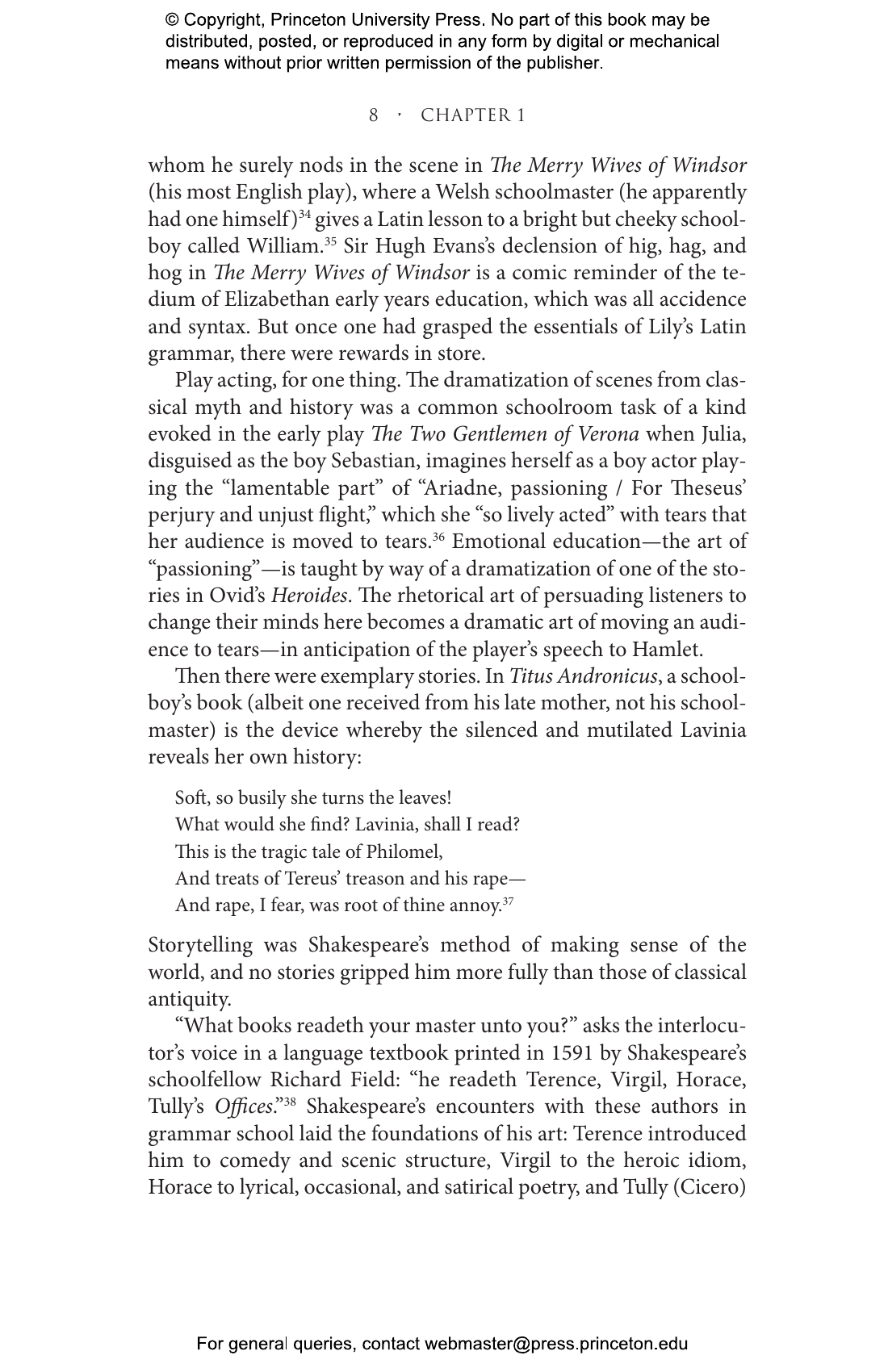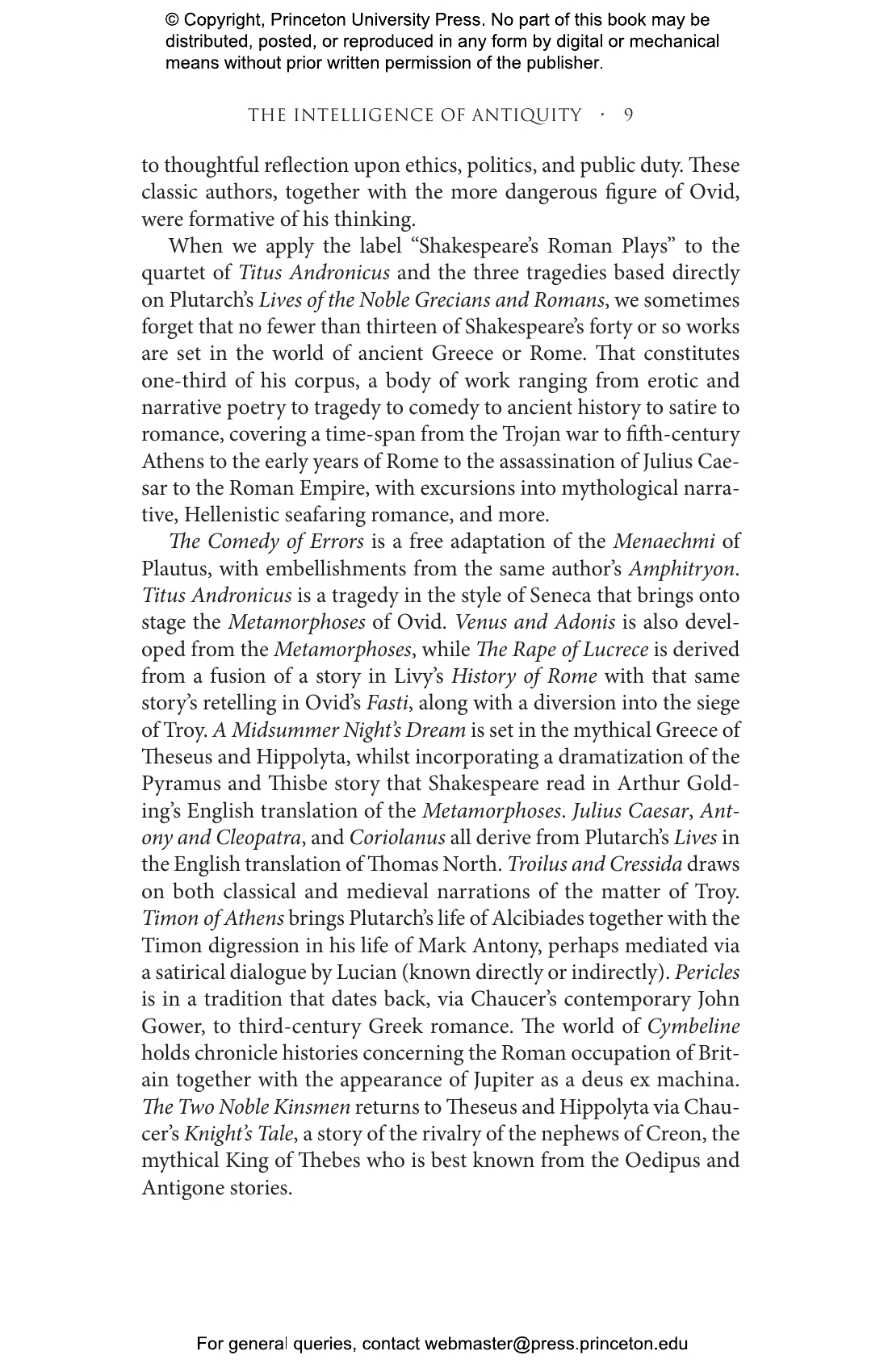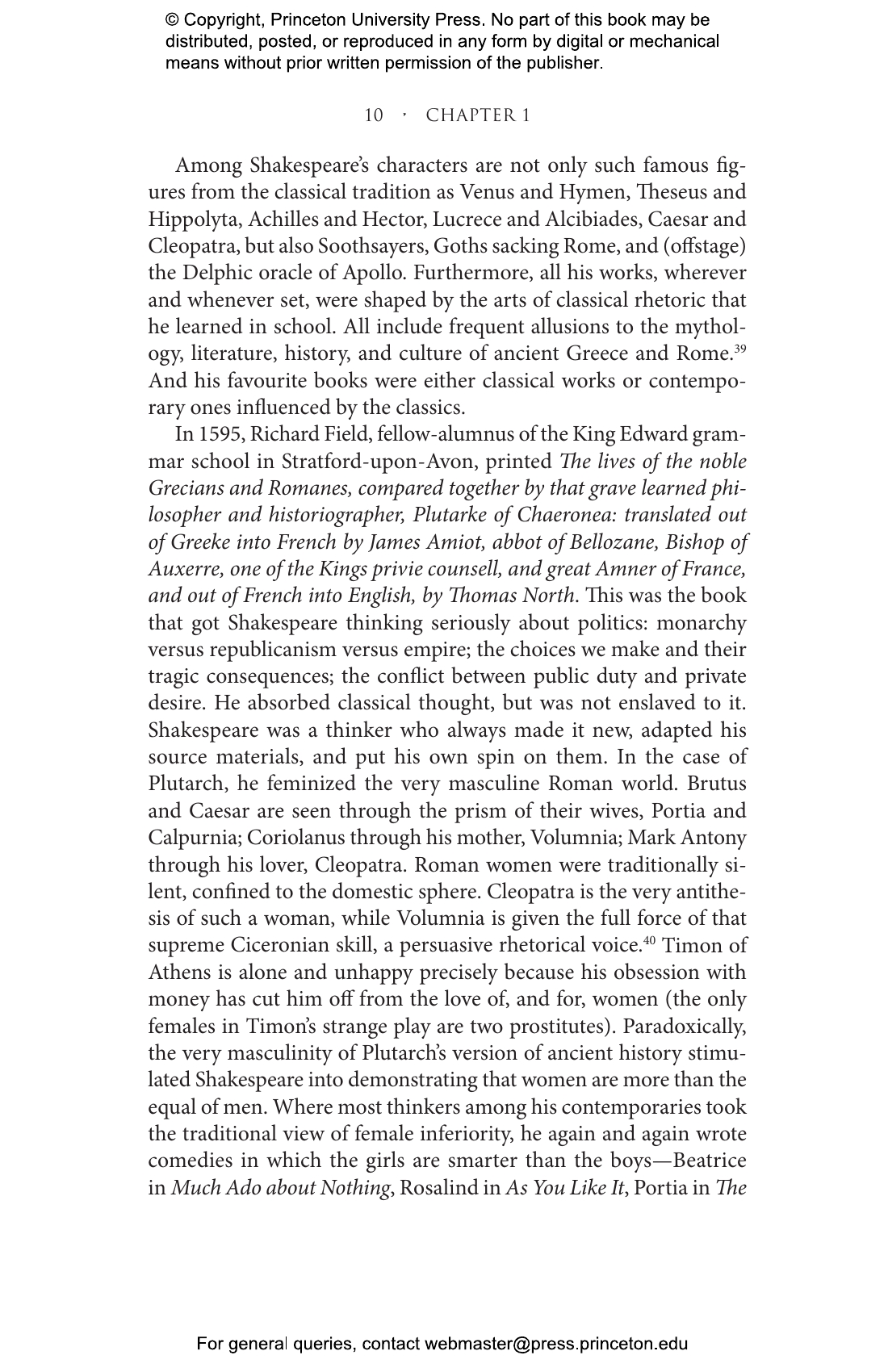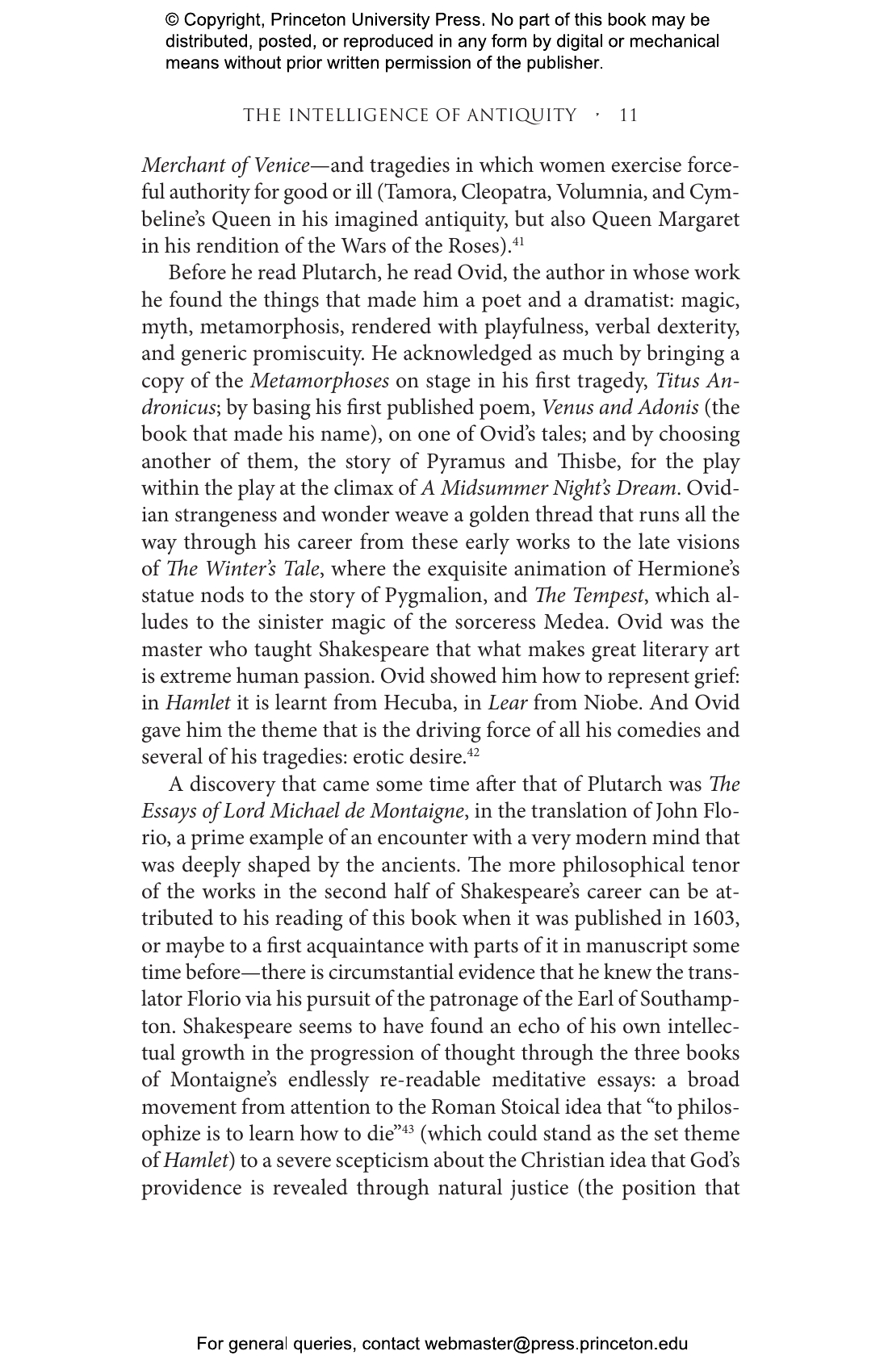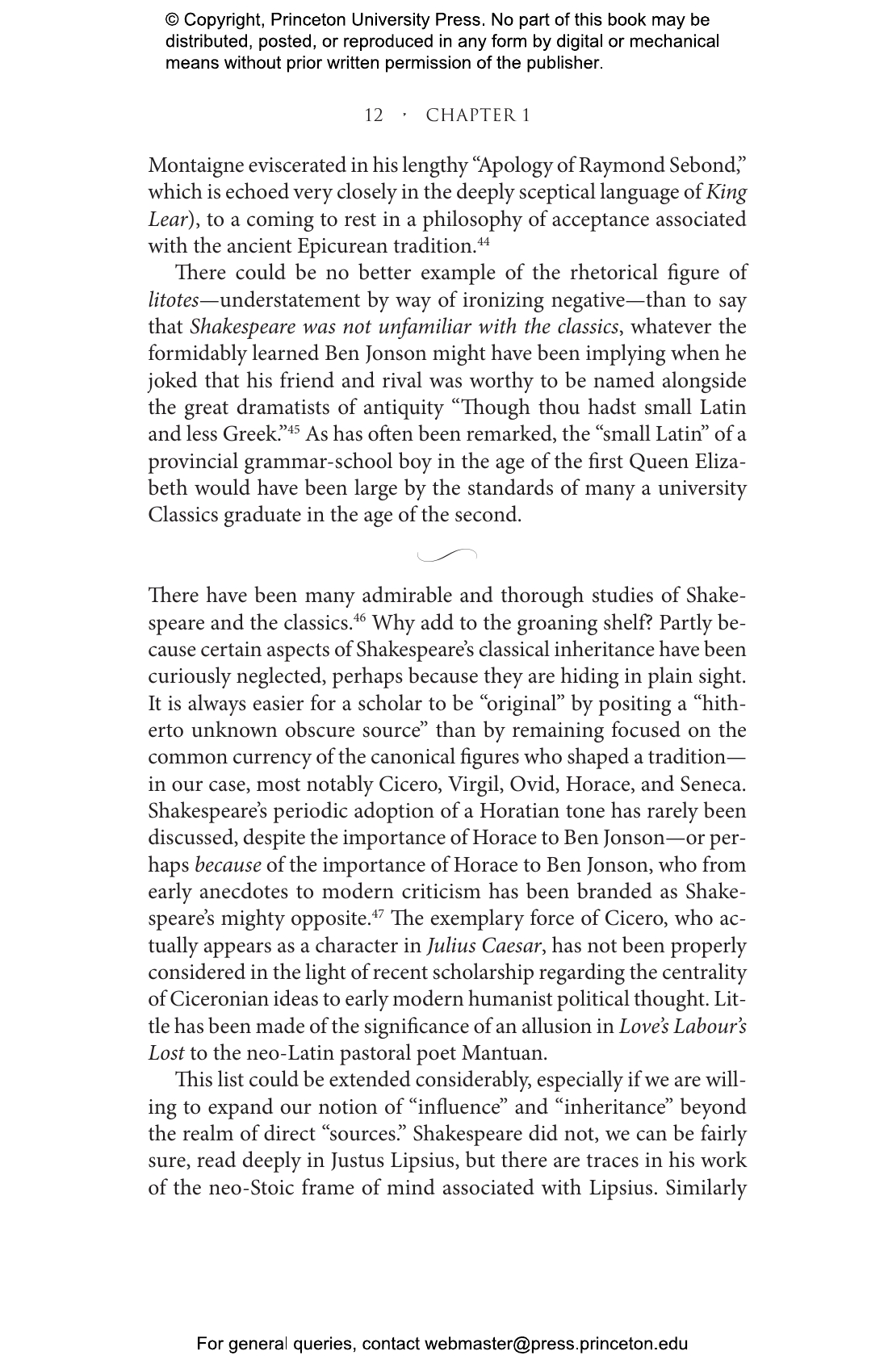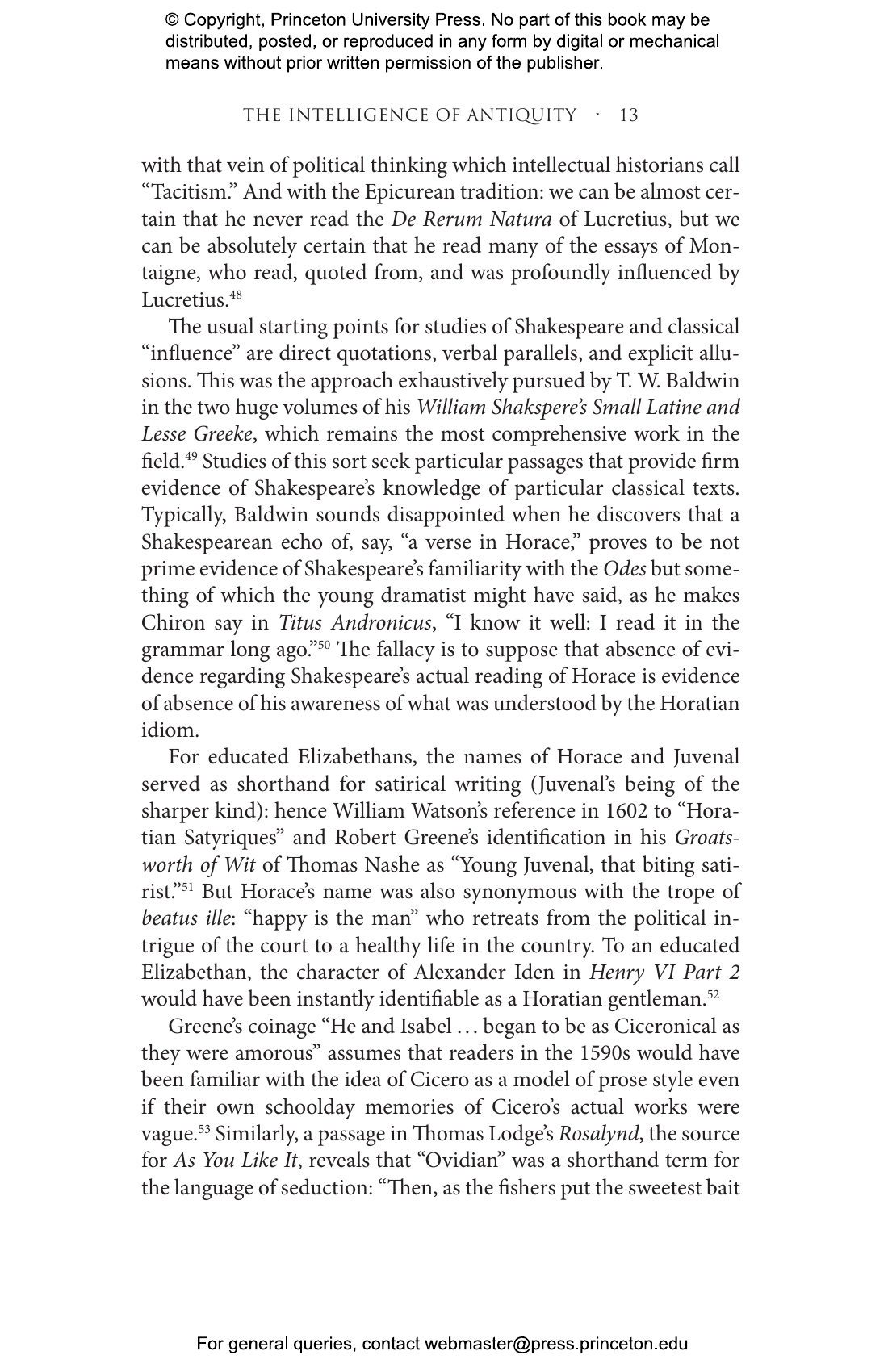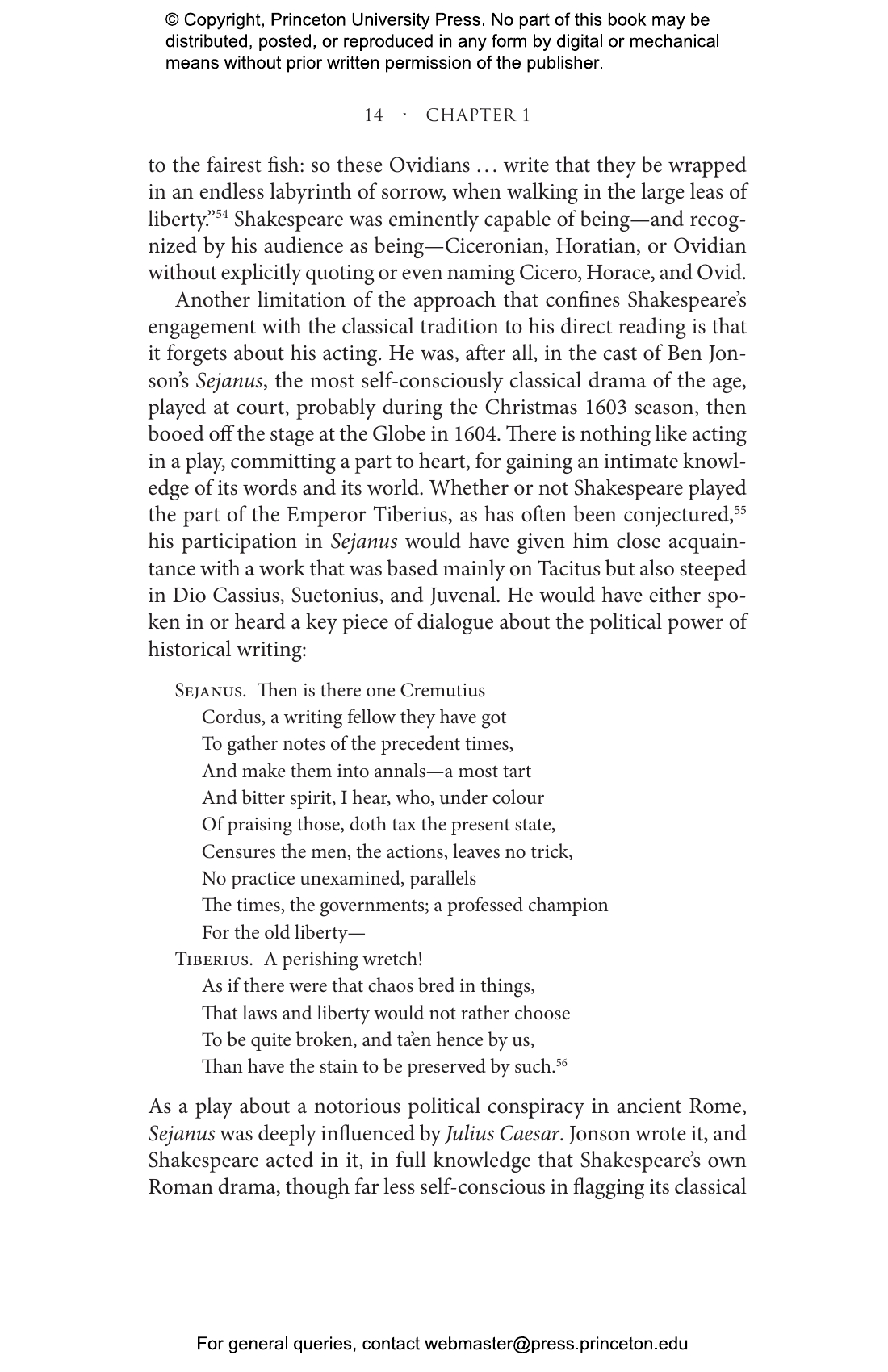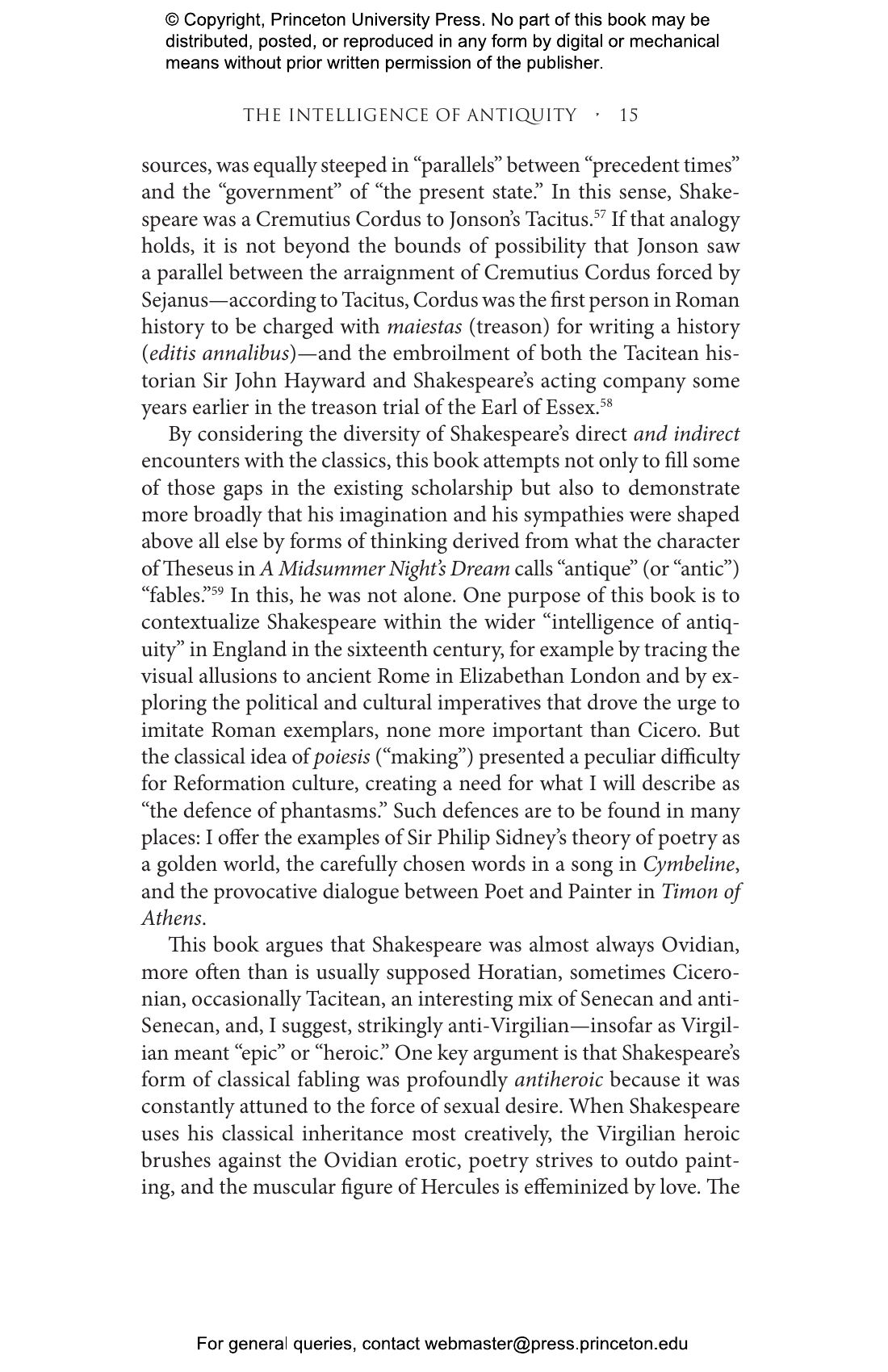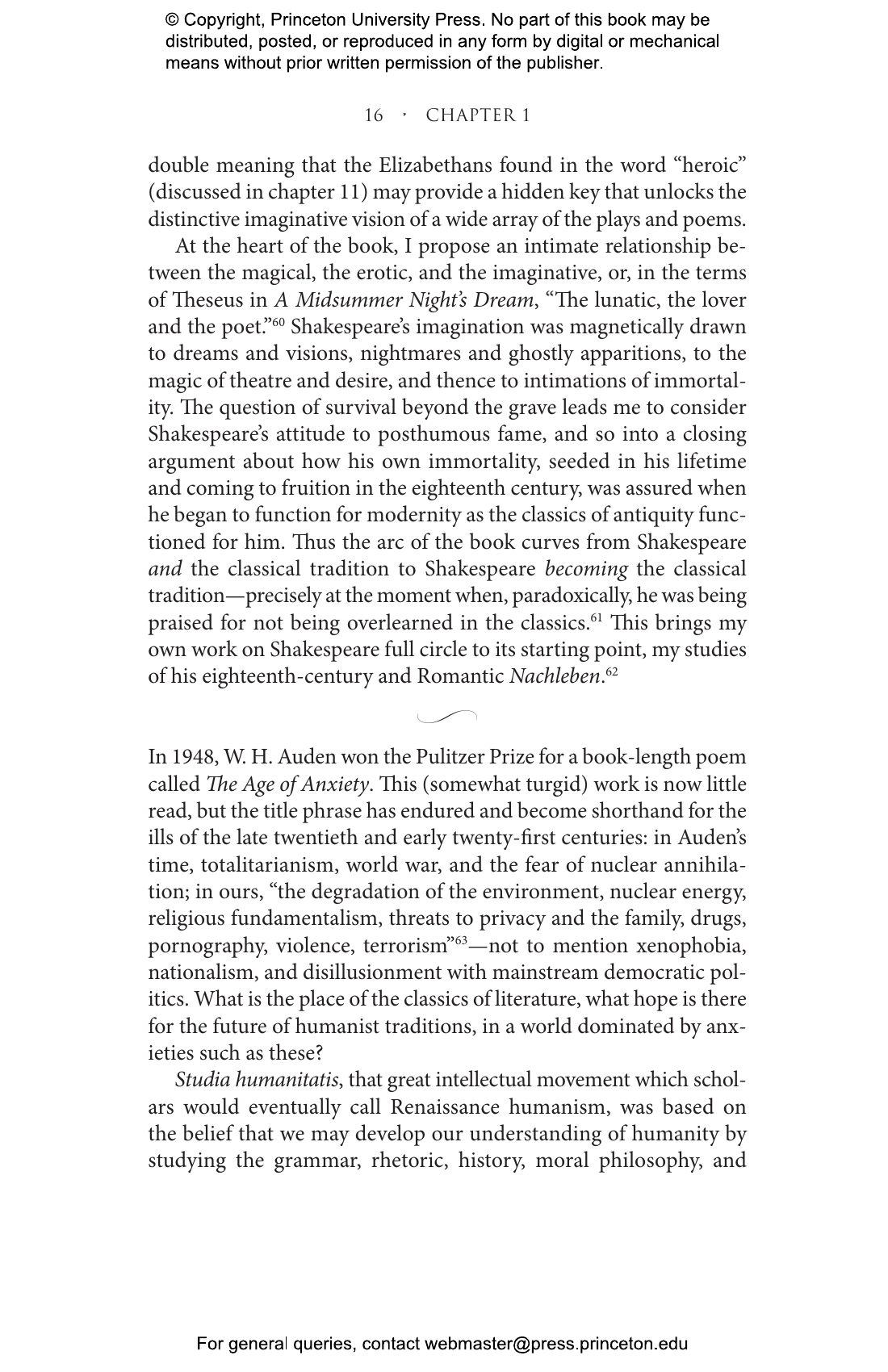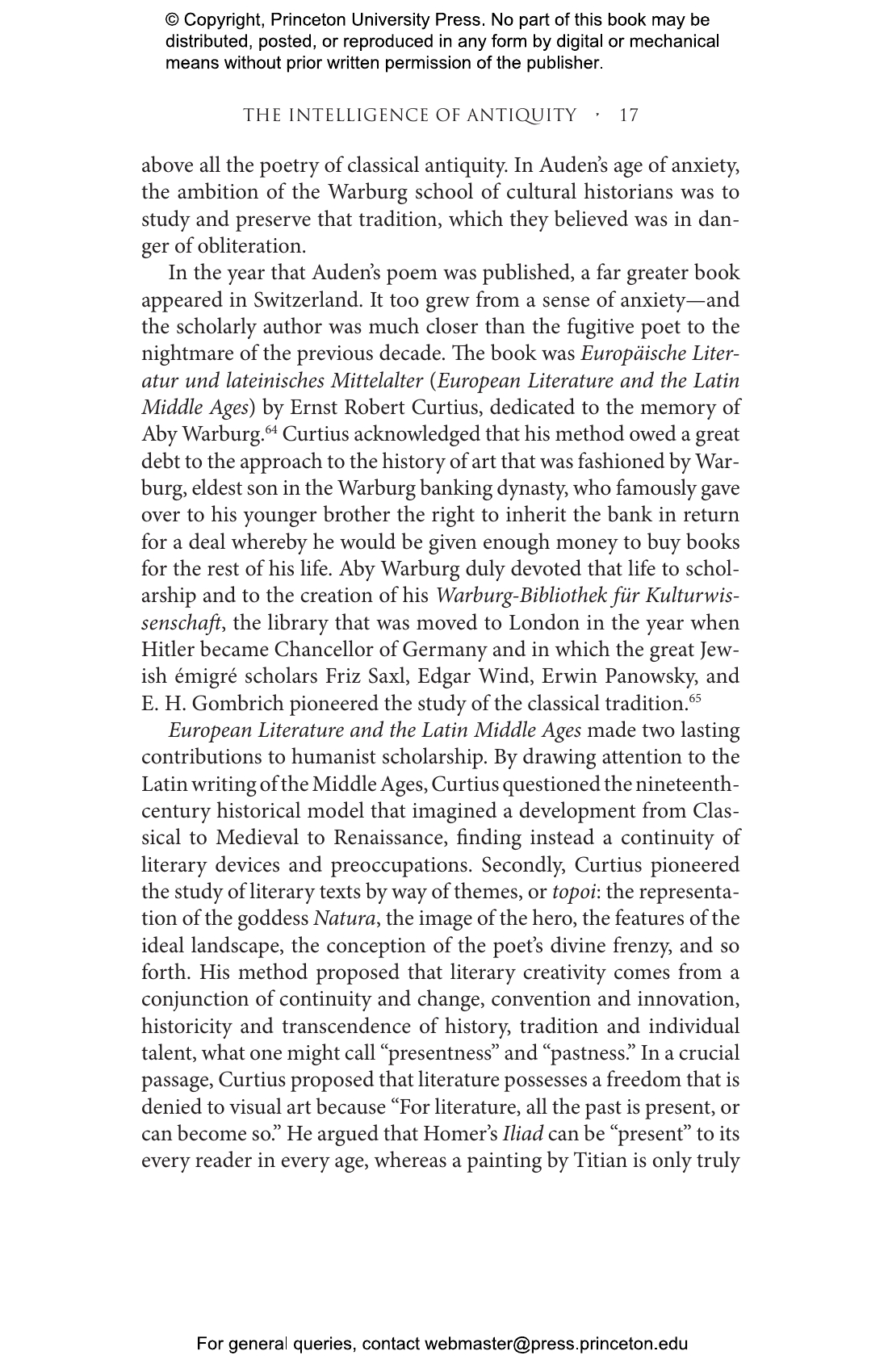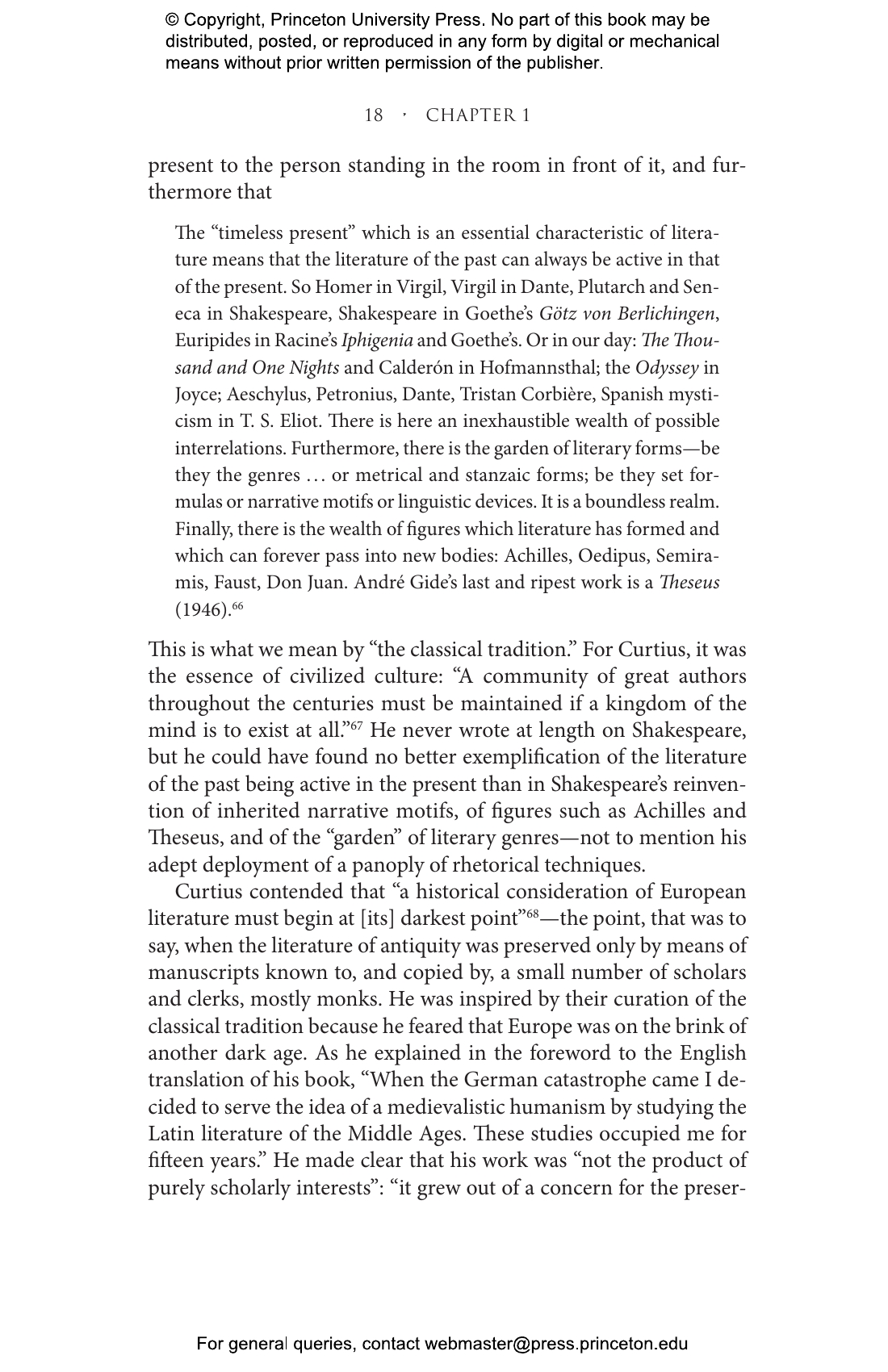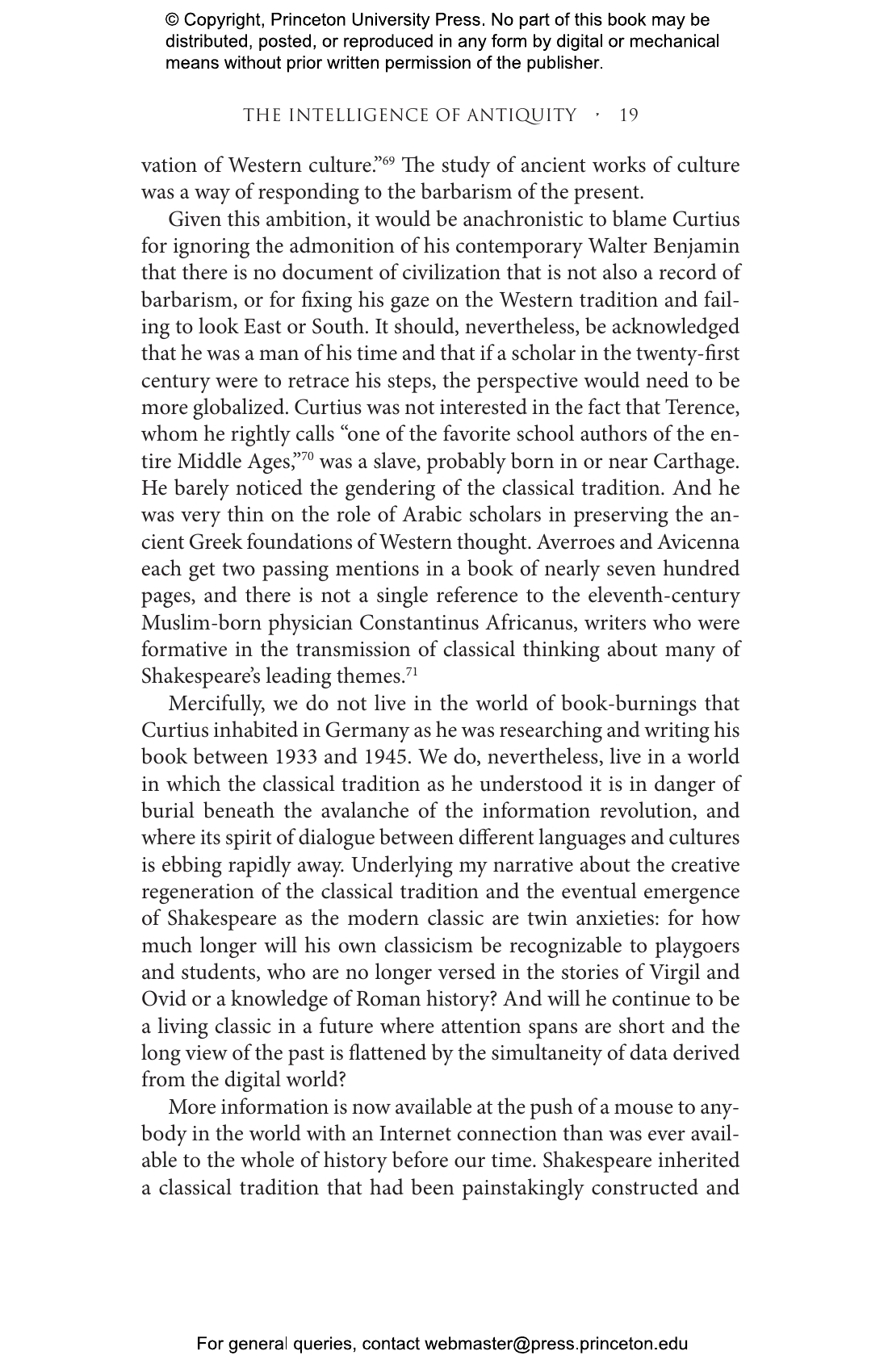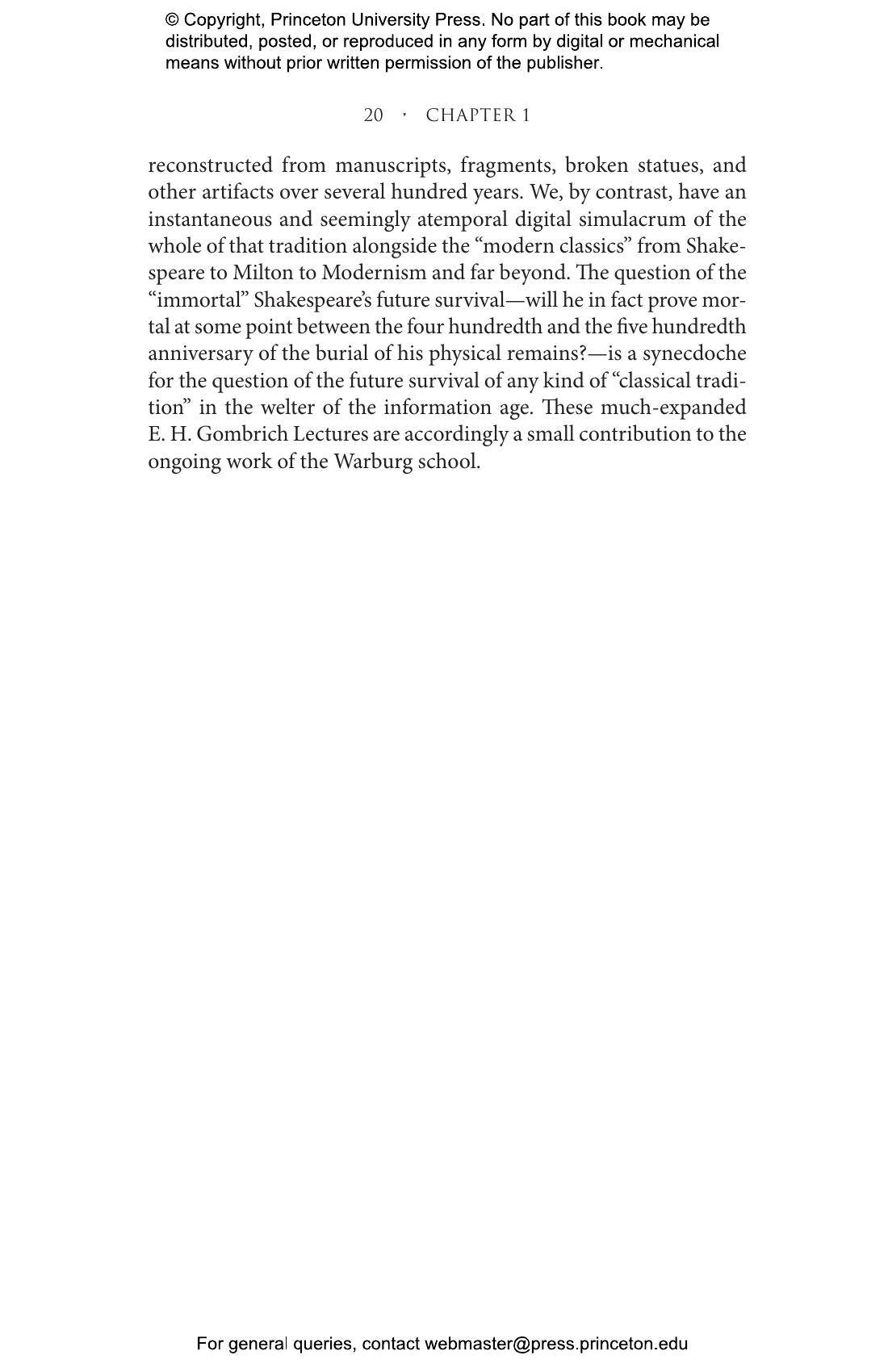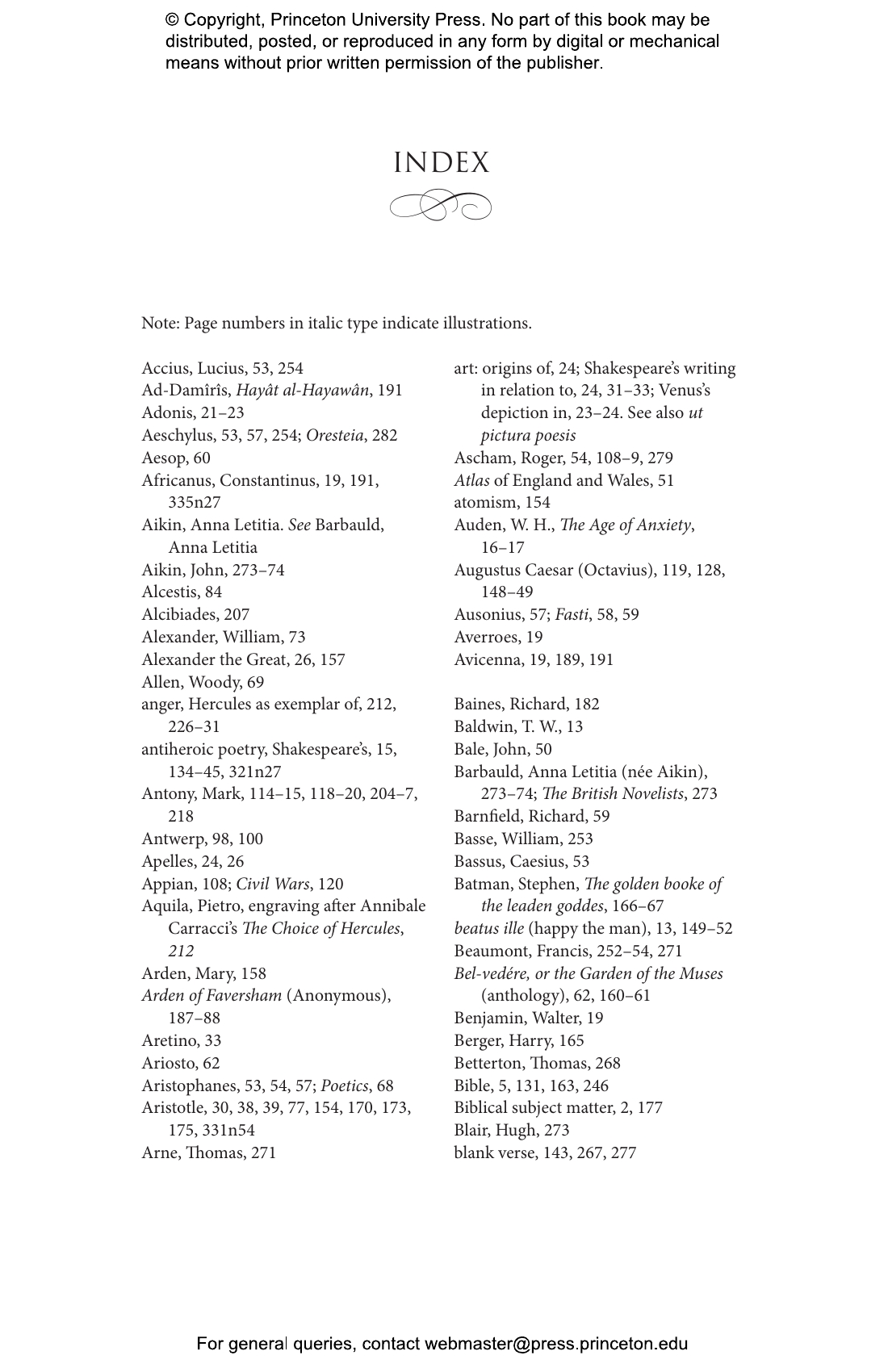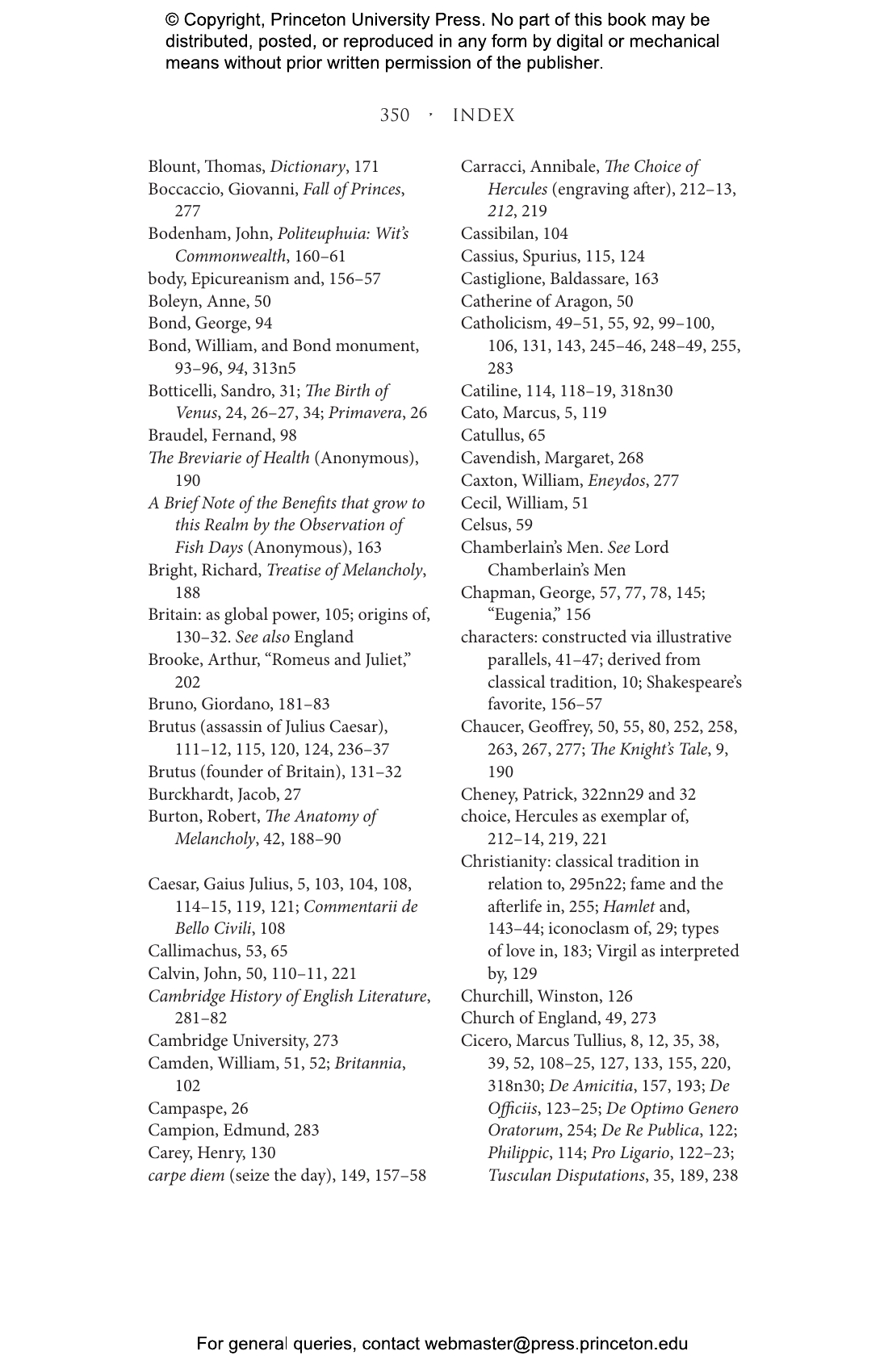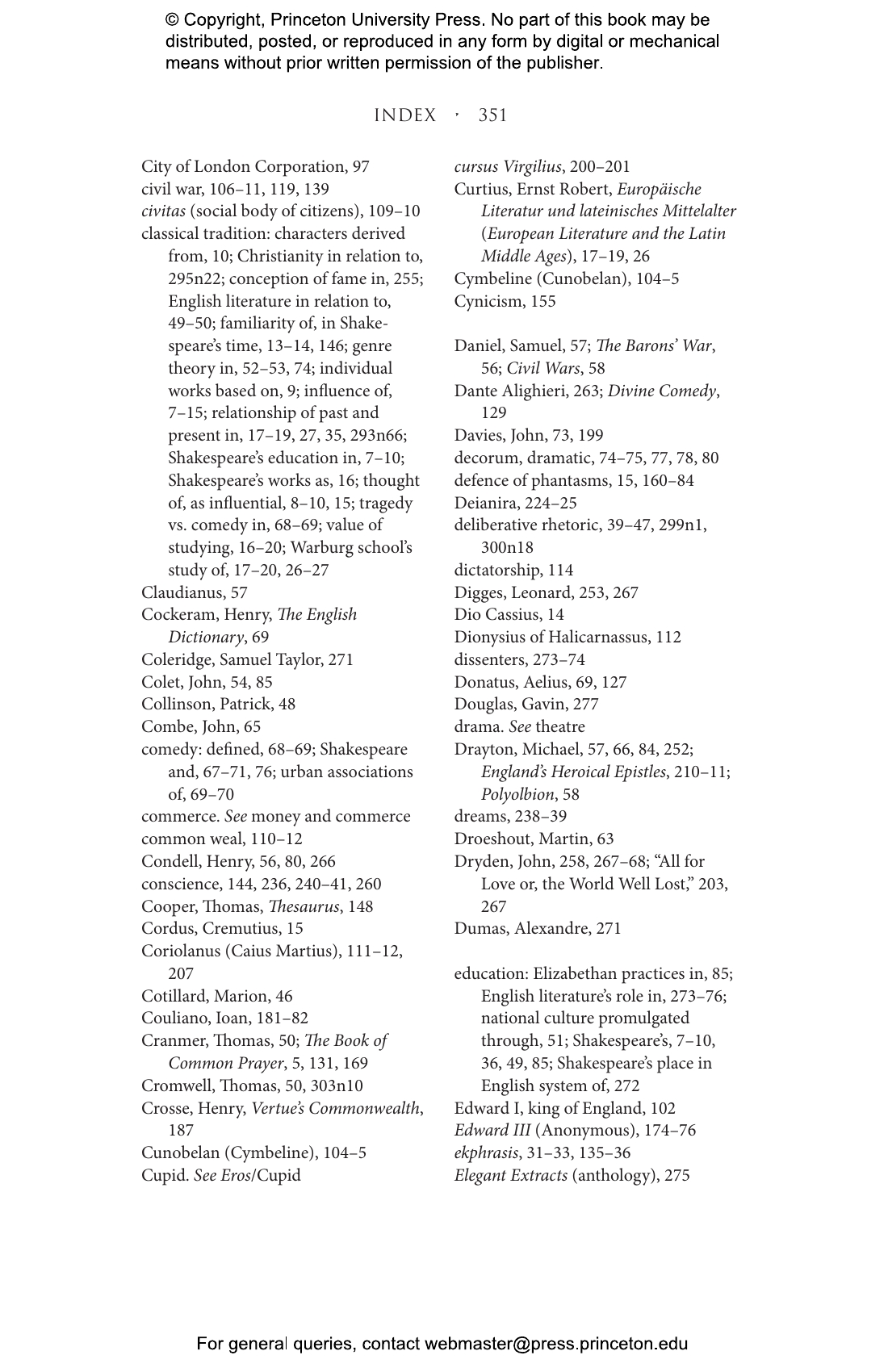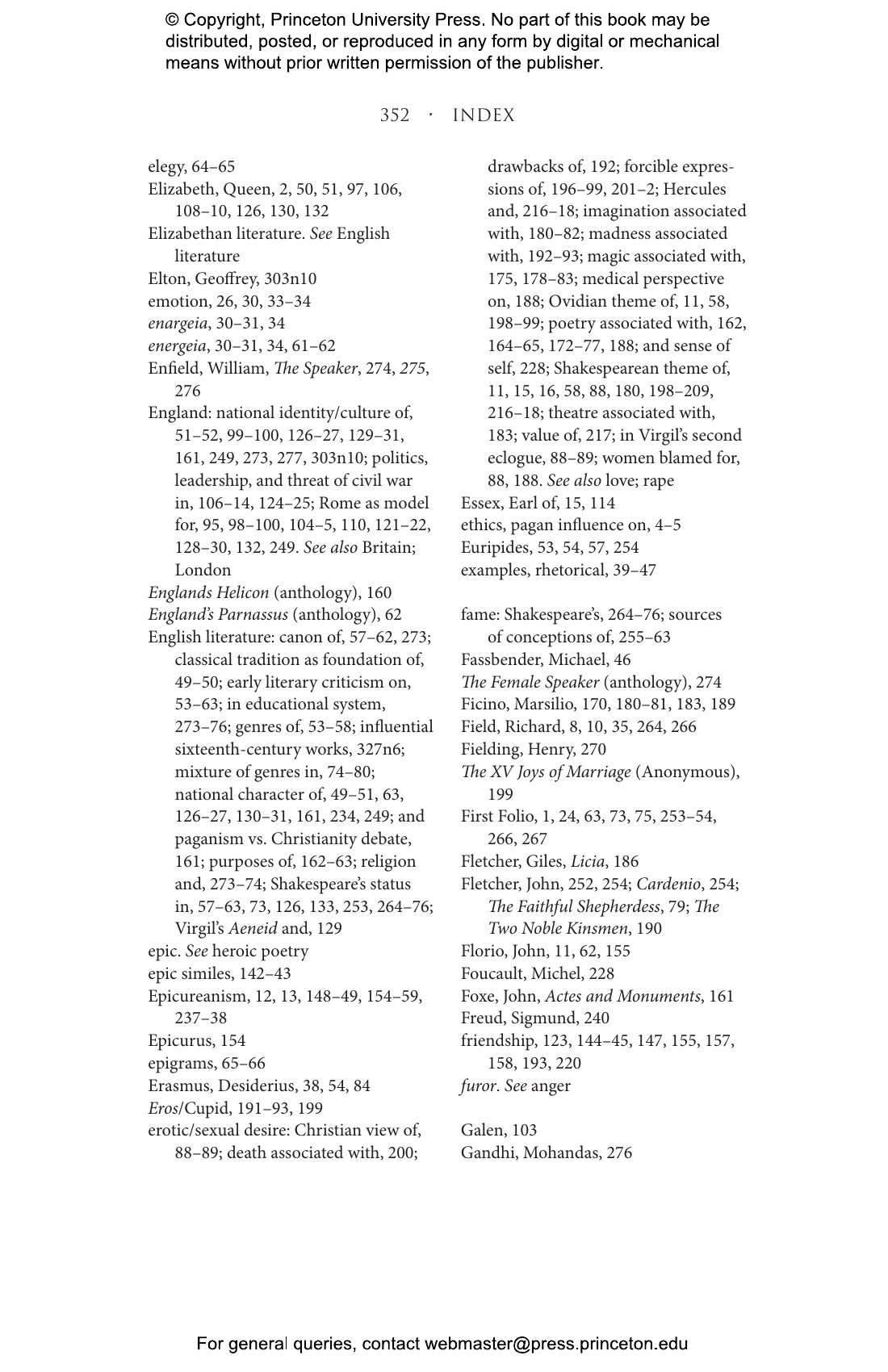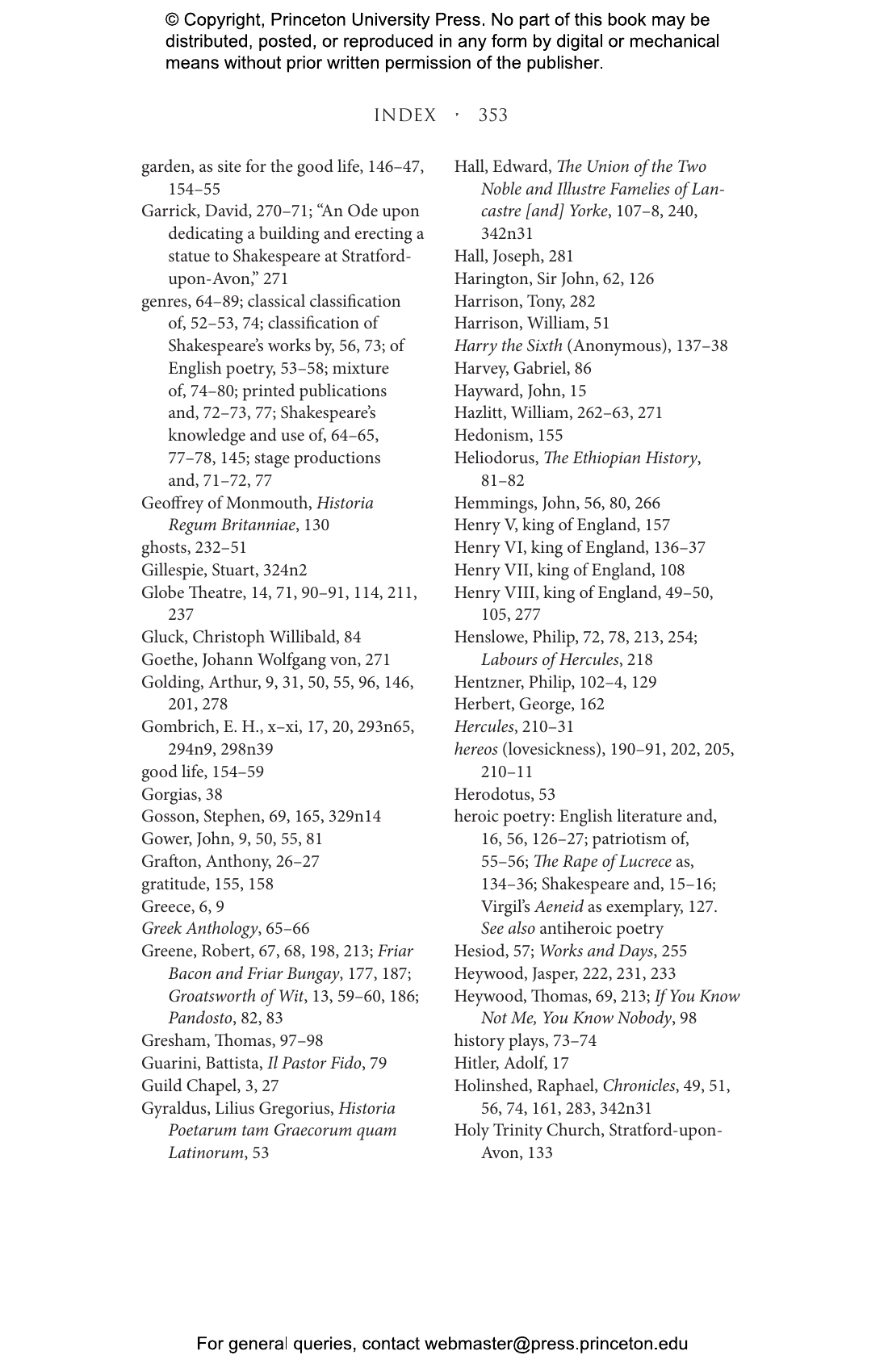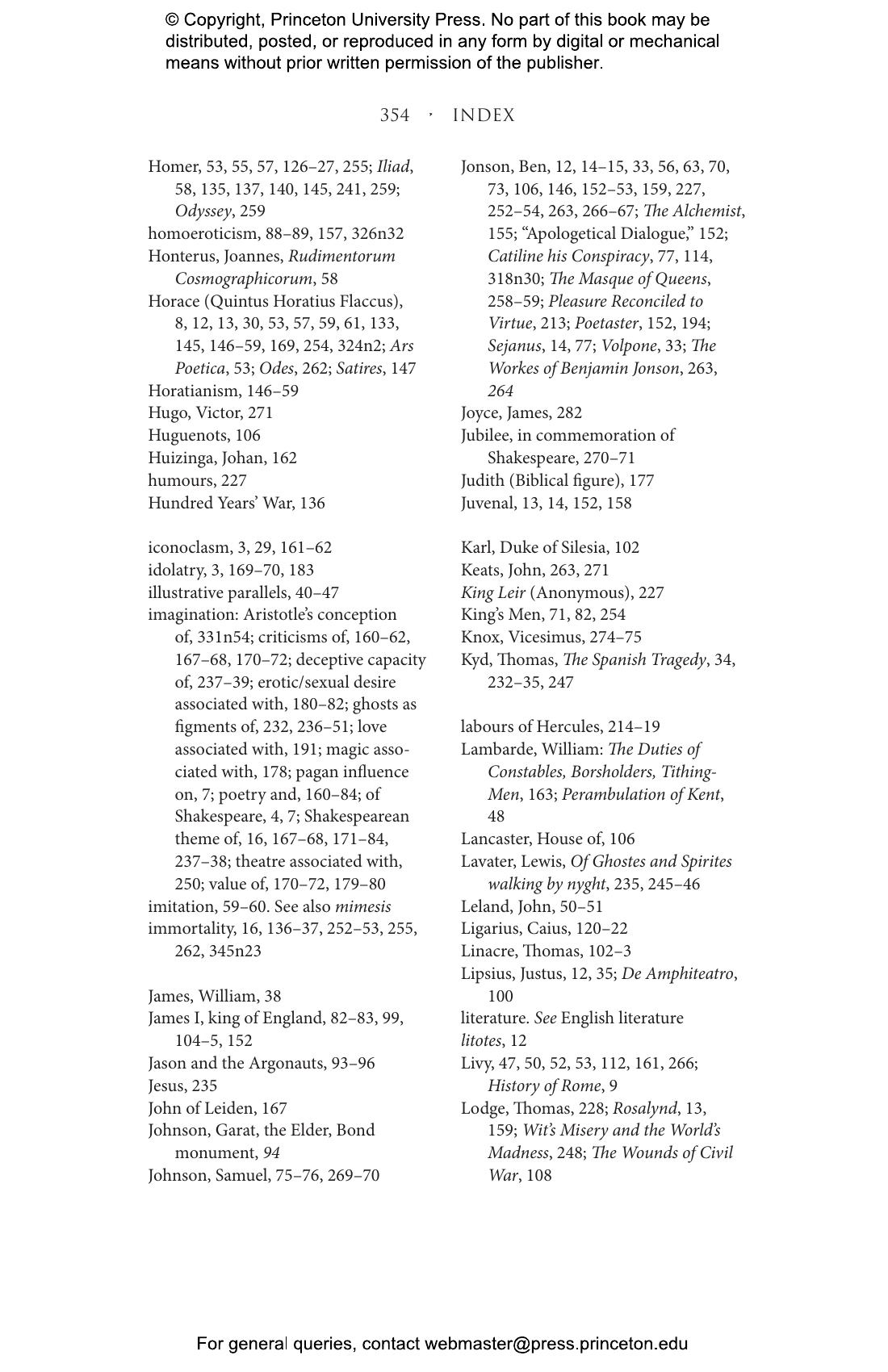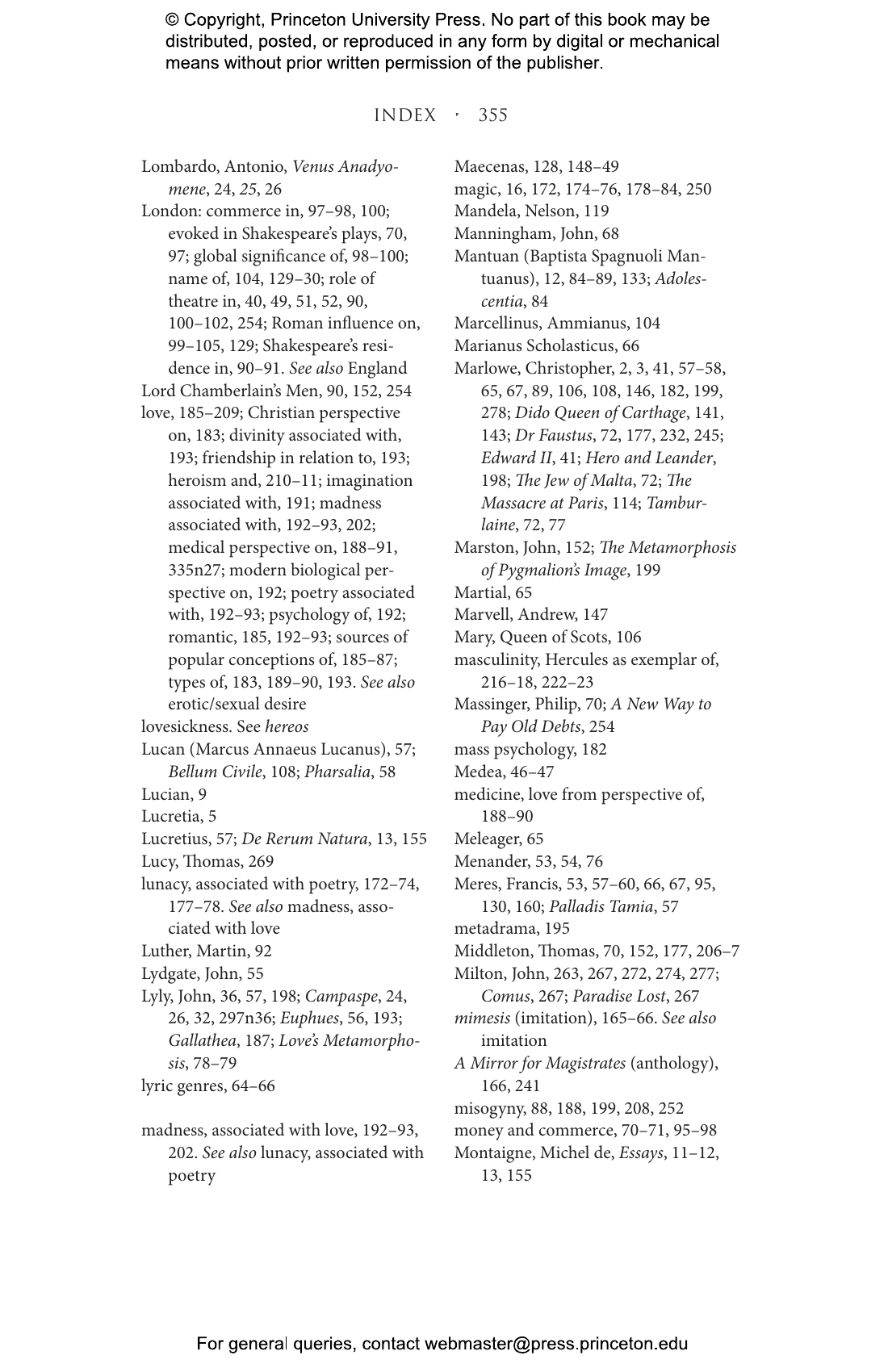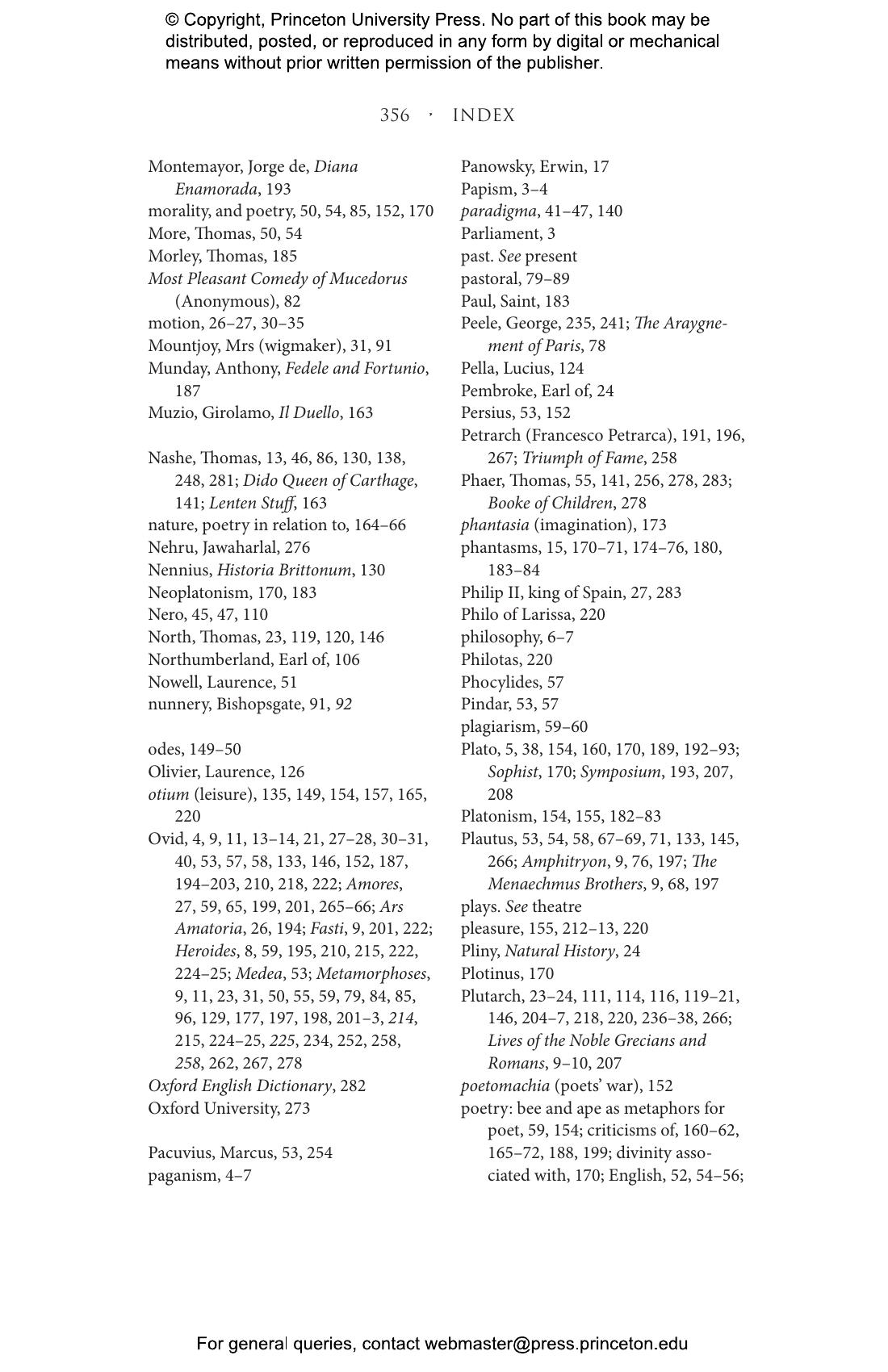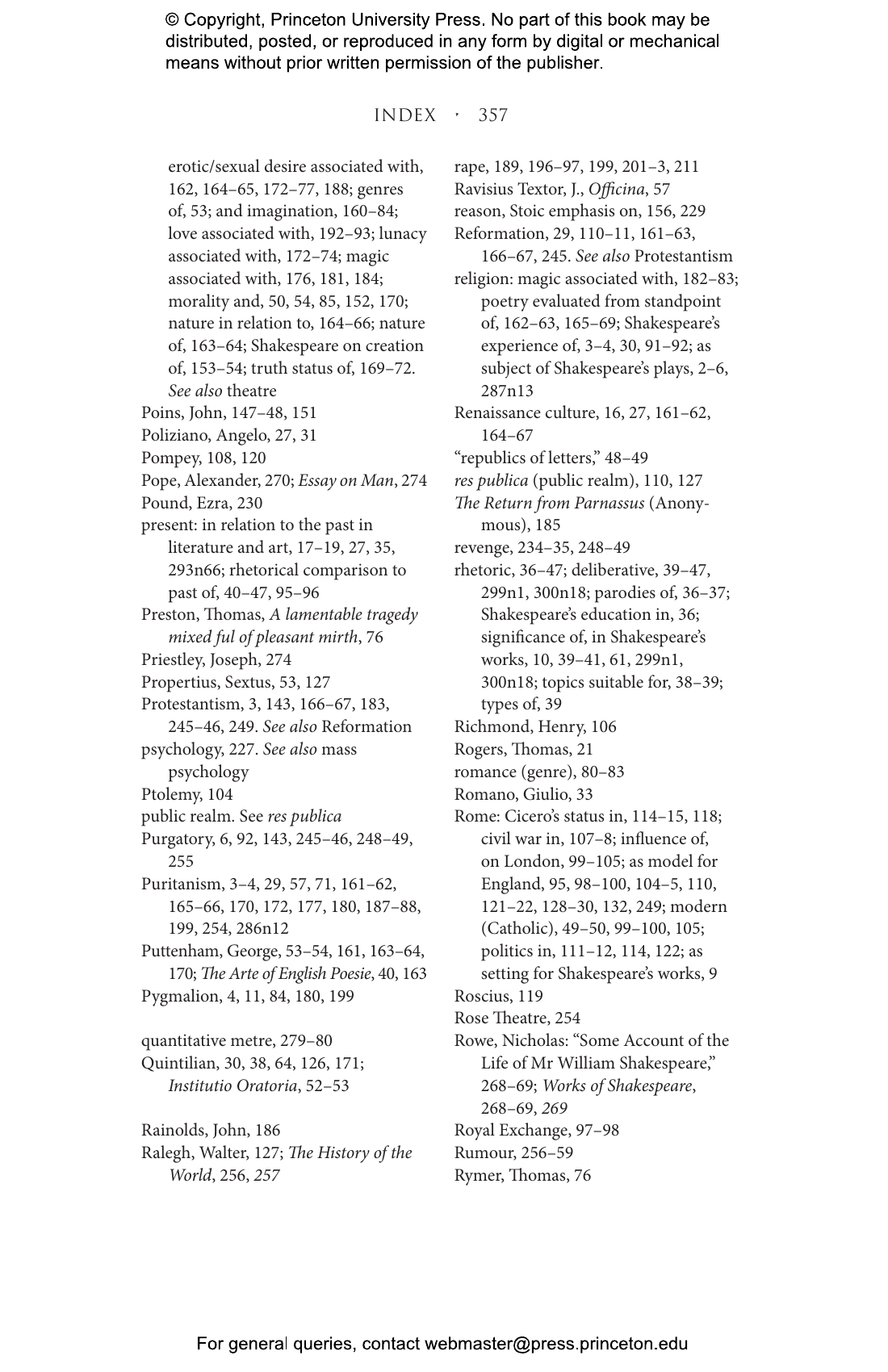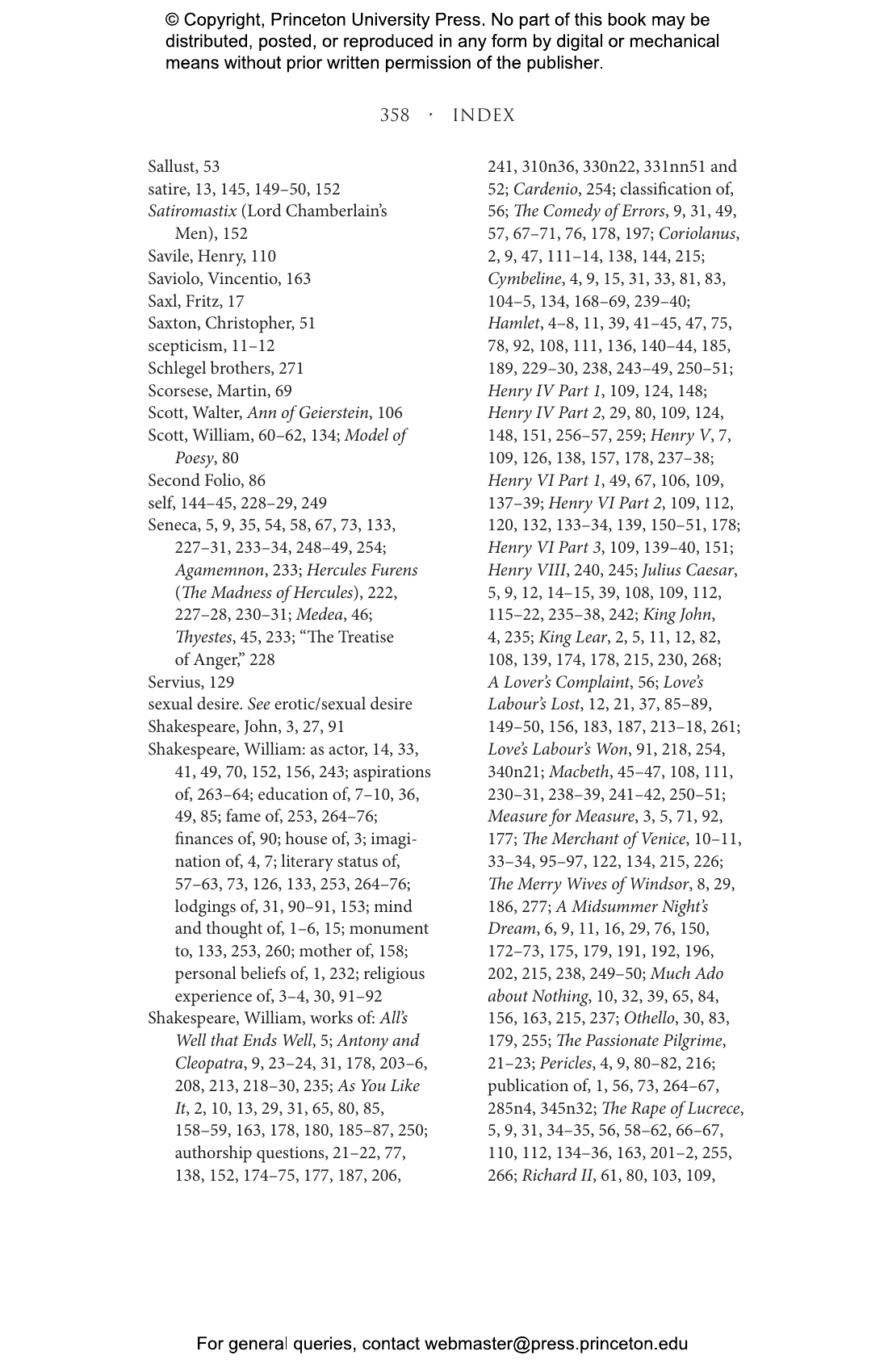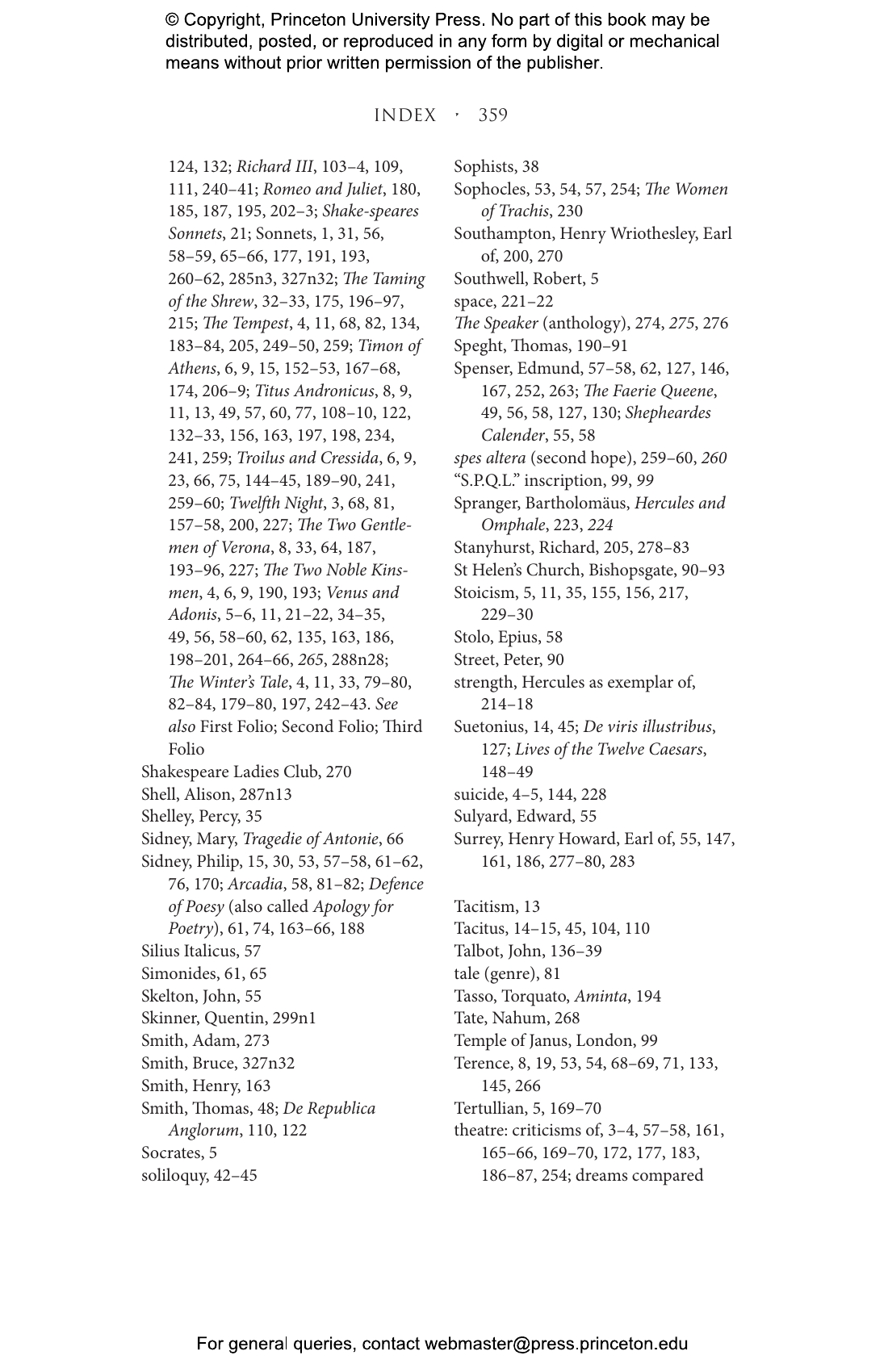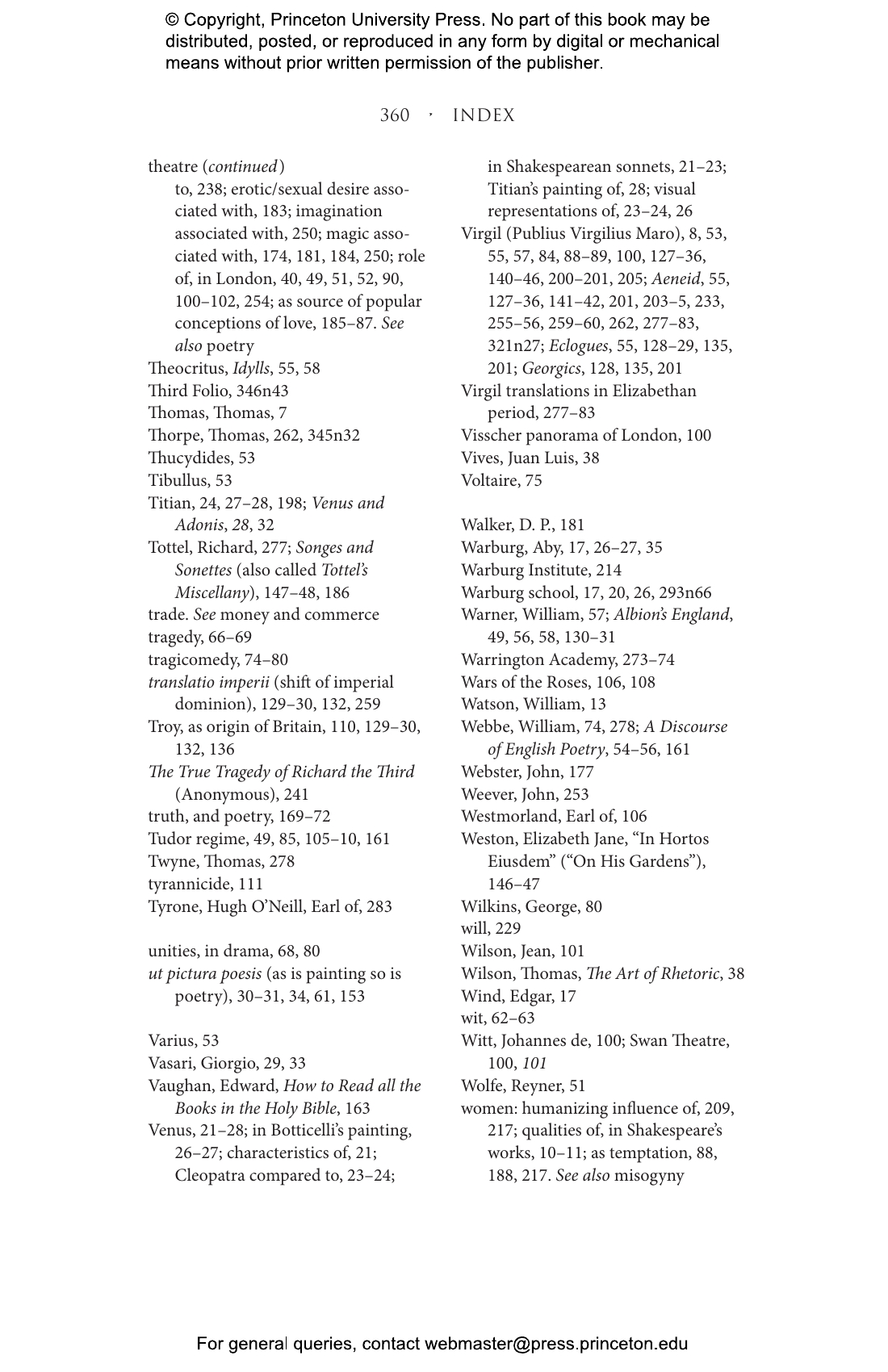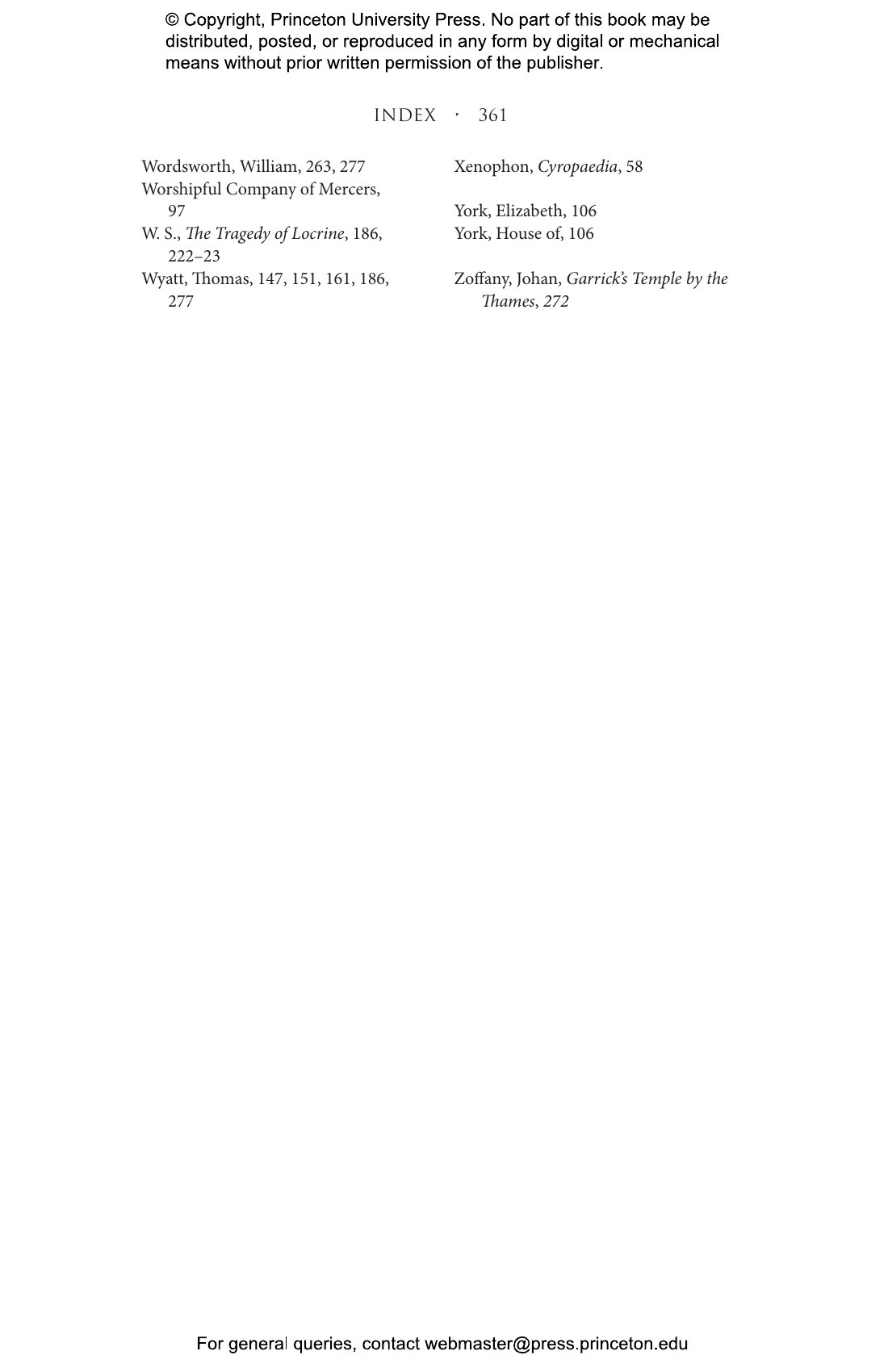Ben Jonson famously accused Shakespeare of having “small Latin and less Greek.” But he was exaggerating. Shakespeare was steeped in the classics. Shaped by his grammar school education in Roman literature, history, and rhetoric, he moved to London, a city that modeled itself on ancient Rome. He worked in a theatrical profession that had inherited the conventions and forms of classical drama, and he read deeply in Ovid, Virgil, and Seneca. In a book of extraordinary range, acclaimed literary critic and biographer Jonathan Bate, one of the world’s leading authorities on Shakespeare, offers groundbreaking insights into how, perhaps more than any other influence, the classics made Shakespeare the writer he became.
Revealing in new depth the influence of Cicero and Horace on Shakespeare and finding new links between him and classical traditions, ranging from myths and magic to monuments and politics, Bate offers striking new readings of a wide array of the plays and poems. At the heart of the book is an argument that Shakespeare’s supreme valuation of the force of imagination was honed by the classical tradition and designed as a defense of poetry and theater in a hostile world of emergent Puritanism.
Rounded off with a fascinating account of how Shakespeare became our modern classic and has ended up playing much the same role for us as the Greek and Roman classics did for him, How the Classics Made Shakespeare combines stylistic brilliance, accessibility, and scholarship, demonstrating why Jonathan Bate is one of our most eminent and readable literary critics.
"[In this] amazingly erudite new study . . . Jonathan Bate shows that this process of repurposing old stories has always been the point of Shakespeare."—Daniel Swift, The Spectator
"[How the Classics Made Shakespeare is] frequently exquisite."—Elizabeth Winkler, Wall Street Journal
"How the Classics Made Shakespeare deserves an accolade too seldom awarded to academic works: Besides being eminently readable, it proffers illuminating observations and facts on every page."—Michael Dirda, Washington Post
"Jonathan Bate does not disappoint. . . . An absolute tour de force, a scholar non pareil, in every regard."—Ian Lipke, Queensland Reviewers Collective
"His scholarship is impeccable, his writing clear and vibrant. The study is a real delight, never ponderous, wonderfully insightful."—Alan Dent, Penniless Press
"Bate well reminds us that the survival of the classical world he has explored is under an even greater threat, as its literature and history recede from our educational curricula. We have even smaller Latin and even less Greek."—Paul Dean, The New Criterion
"At his best, Bate is utterly enthralling . . . . [How the Classics Made Shakespeare] is a wonderful, enlightening read."—Chris Tudor, Argo
"Bate is excellent at discussing text and context, Shakespeare and his contemporaries as well as the classics. Bate’s style is elegant, his learning informative, and his book rich beyond what a review can tell."—Jonathan Locke Hart, Renaissance & Reformation
"Discussions of classical influence on Shakespeare have generally looked at specific quotes, references, and allusions. By contrast, in this thorough study notable Shakespeare scholar Jonathan Bate takes a different approach: he considers the influence of classical works on the Elizabethan mindset, arguing that one must consider the indirect, as well as the direct, influences of the classics on Shakespeare’s work and on its reception by an Elizabethan audience. The author ably demonstrates that looking at the indirect influences enables one to appreciate the profound influence of the classical tradition (particularly Ovid) not only on Shakespeare but on the broader Elizabethan understanding of the world. Having detailed the influence of the classical on Shakespeare, Bate then traces a similar dynamic for Shakespeare’s influence on contemporary readers. Smoothly paced—thanks to compact, well-focused chapters—this fascinating work is eminently readable. It offers new readings of Shakespeare’s works and new ways of thinking about the influence of literary tradition, and it provides deep contextualization with broad and well-supported references to classical and early modern works."—L. S. Stanavage, Choice Reviews
"In a book as vigorous and often delightful as How the Classics Made Shakespeare, this should make any scholar – or perhaps just the ‘original’ ones – raise an eyebrow."—Micha Lazarus, Translations and Literature
"How the Classics Made Shakespeare is the most comprehensive, detailed, and eloquent treatment of the topic by a single author we have . . . no one . . . has revealed so much about Shakespeare and the classics altogether as Bate . . . . [A] charming book."—Scott F. Crider, Moreana
"Jonathan Bate’s luminous study presents Shakespeare anew as a Renaissance writer. . . . The classics, Bate argues, made Shakespeare sexy . . . Shakespeareans of every kind will read this book with profit and pleasure."—David Quint, Renaissance Quarterly
"Jonathan Bate's How the Classics Made Shakespeare is the fruit of wide reading, rich learning, and a lifetime of singularly intelligent reflection on the playwright and his sources. Bate's fresh insights into even the most familiar of plays amply justifies his claim that Shakespeare's imagination had its birth in his Latin lessons in the Stratford-upon-Avon schoolroom and that throughout his career he turned for inspiration to the heritage of Greece and Rome."—Stephen Greenblatt, author of Will in the World: How Shakespeare Became Shakespeare
"This book is a wonderful treat for all. Scholars who thought that they knew all about the influence of the classics on Shakespeare will have to think again. Bate explains with unparalleled synthesis and lucidity why Shakespeare was 'the Cicero of his age' and how and why he modeled his lifework on Horace. General readers will not be able to put this book down: it is beautifully written and packed with arresting insights."—Sonia Massai, King’s College London
“A rich and varied tapestry, this is a masterly exploration of Shakespeare’s uses of classical authors, and of the wider uses of classical history and tradition in the political and cultural life of Renaissance Britain. The writing is graceful and the scholarship is worn lightly, making the book widely accessible."—Philip Hardie, Trinity College, University of Cambridge


